
- Forensics Colleges » Programs » Forensic Science » PhD in Forensic Science
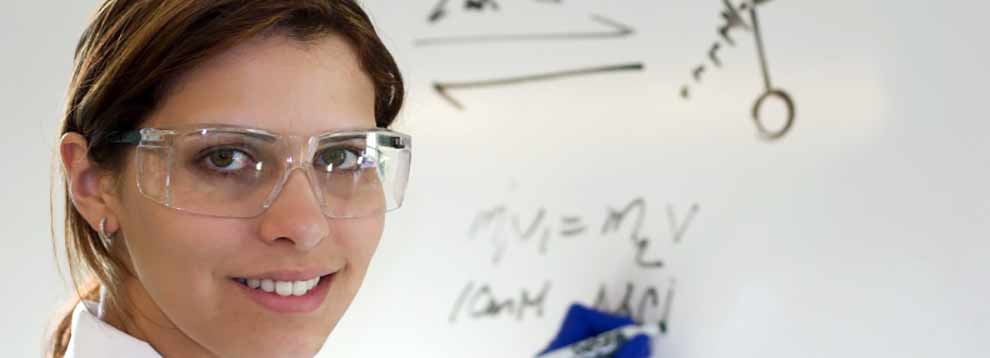

Search For Schools
When you click on a sponsoring school or program advertised on our site, or fill out a form to request information from a sponsoring school, we may earn a commission. View our advertising disclosure for more details.
PhD Programs in Forensic Science – Accredited Doctoral Programs
There are various doctoral programs in forensic science for forensics professionals with niche research interests, several years of experience, and an unbreakable work ethic. While most of the programs at this level fall into one of the discipline’s subfields, such as chemistry, clinical psychology, or anthropology, there are a few terminal degree options in forensic science.
Preparation at the PhD level is crucial to furthering the discipline of forensic science for several reasons. First, graduate students and professors are typically responsible for revolutionizing the technologies and methods behind forensic technologies. By illustration, Discover Magazine published a piece on Dr. Robert Hare—one of the pioneers in forensic psychology—and explained that in the 1950s, he was working in uncharted waters. Dr. Hare is well-known for his Psychopathy Checklist (PCL), which he developed in 1980 to identify psychopathic tendencies. While forensic psychology was still in its infancy, this groundbreaking researcher pinpointed 20 items associated with psychopathy, including exhibiting a lack of empathy, impulsivity, a tendency toward short-term relationships, and a failure to take responsibility for one’s actions.
Dr. Hare was also one of the first researchers to use physiological arousal studies to study the disease. People with mental illness generally do not show the same arousal in response to stressful stimuli as control subjects. Dr. Hare is one example of a forensic scientist who pioneered new methods in the subfield of clinical psychology to measure mental illness.
Second, achieving a terminal degree in forensic science may require employment at the highest levels of universities, forensic laboratories, research organizations, and other institutions. Having a PhD can enhance one’s candidacy for leadership and teaching positions and may also increase one’s salary potential.
Lastly, it may be wise to pursue a PhD in forensic science or a subfield to prepare oneself for professional certification. In fact, several credentialing boards of the discipline require applicants to have a doctoral degree, including the American Board of Forensic Anthropology (ABFA), the American Board of Forensic Odontology (ABFO), and the American Board of Forensic Toxicologists (ABFT), specifically for credentialing at the Fellow level. In addition, please visit the forensic science careers page to learn more about the credentialing organizations accredited by the esteemed Forensic Specialties Accreditation Board (FSAB).
Read on to learn about the wealth of accredited PhD programs in forensic science and the relevant psychology, chemistry, and anthropology subfields.
| Featured Forensic Science Graduate Programs | ||
|---|---|---|
| Arizona State University | Forensic Science (PSM) | |
| Grand Canyon University | MS - Forensic Science | |
| Stevenson University Online | Online Master of Forensic Science (MFS) | |
| Stevenson University Online | Online MFS - Biology Concentration | |
| Stevenson University Online | Online MFS - Chemistry Concentration | |
| When you click on a sponsoring school or program advertised on our site, or fill out a form to request information from a sponsoring school, we may earn a commission. View our for more details. | ||
THANK YOU FOR YOUR INTEREST IN Southern New Hampshire University Online MS - Construction Management
Doctoral degree programs in forensics.
While few doctoral programs focus exclusively on forensic science, there are many PhD options in the varied subfields. Prospective students in forensics are urged to verify the accreditation status of their institutions and programs. To learn more about accreditation, please read the section at the end.
Doctoral Degree Program Requirements
To gain entry into a PhD program, admissions committees typically call for the following from students:
- Official transcripts from all undergraduate (and graduate) institutions with a stellar GPA (e.g., >3.5)
- Proof of having completed specific coursework in a relevant major (e.g., forensic science, natural science, chemistry, biology)
- A resume with one to two years of professional experience in forensic science
- Letters of recommendation
- A personal statement (typically 1,000 words or less)
- Interview (in-person, phone, or web-based)
- Competitive Graduate Record Examination (GRE) scores
- GRE Subject Test scores (generally optional)
- TOEFL scores (for non-native speakers of English only)
- Proof of professional publications (recommended, but not always required)
- A background check (especially for competitive internships for program credit)
- Application fee
Doctoral Programs in Forensic Science
There are currently limited options at the PhD level for forensic science programs, but they are on the rise.
Sam Houston State University
At Sam Houston State University in Huntsville, Texas, students can pursue a doctor of philosophy (PhD) in forensic science. As one of the only programs in the US, this 86-credit-hour program generally takes four to five years of full-time study to complete. Sam Houston’s curriculum comprises core coursework, electives, and dissertation research.
In addition, the degree plan includes classes such as forensic instrumental analysis; trace and microscopical analysis; forensic toxicology; research methods; and forensic laboratory management.
Notably, Sam Houston State University has a master’s degree in forensic science that is FEPAC-accredited.
- Location: Huntsville, TX
- Accreditation: Southern Association of Colleges and Schools Commission on Colleges (SACSCOC)
- Expected Time to Completion: Four to five years
West Virginia University
West Virginia University (WVU), based in Morgantown, is another program that offers a PhD specifically focused on forensic science. According to the school, the program “is strongly science-based and prepares students to work across the foundations of criminalistics.”
WVU is the only school in the nation boasting forensics programs at the undergraduate, graduate, and doctoral levels. WVU’s bachelor’s and master’s programs are accredited by the prestigious Forensic Science Education Programs Accreditation Commission (FEPAC). FEPAC is the gold standard in program approvals for forensic science at the bachelor’s and master’s degrees.
Applicants to the PhD program should possess a bachelor’s or research-based master’s degree from an accredited university or college which includes at least one year of the following courses: fundamentals of chemistry, biology, organic chemistry, physics, or calculus. They should have a minimum cumulative GPA of 3.0 and GRE scores of 300 or better.
Students in this program must successfully complete a minimum of 71 credits. Each student may apply a maximum of 31 credits of research toward the 71-credit requirement and the remaining 40 credits must be earned in graduate-level courses in forensic science. The program also includes a dissertation proposal presentation, an oral defense of the dissertation, and an oral qualifying examination.
The curriculum includes courses such as foundations of criminalistics; forensic informatics; forensic laboratory management; trace evidence examination; research design in forensic science; arson and explosives analysis; analysis of seized drugs; and analytical forensic toxicology.
- Location: Morgantown, WV
- Accreditation: Higher Learning Commission (HLC)
Doctoral Programs in Forensic Psychology
The American Psychological Association’s (APA) American Psychology-Law Society maintains a detailed guide to legal and forensic psychology programs. In addition, there are PhD programs and PsyD and PhD/JD combined options.
Palo Alto University
Palo Alto University (PAU) in California provides a four-year PhD in clinical psychology with a forensic area of emphasis. Core coursework for this specialized PhD includes forensic assessment, an advanced forensic psychology seminar, assessment and treatment of trauma in adults, child and adolescent development, biological psychology, psychopharmacology, adult development and aging, neuropsychological assessment, and cross-cultural issues in psychology.
In addition, by dividing students into small, faculty-guided research groups, PAU ensures that students get empirical instruction in research methods and proper leadership through all phases of developing their dissertations.
- Location: Palo Alto, CA
- Accreditation: WASC Senior College and University Commission (WSCUC); American Psychological Association (APA)
- Expected Time to Completion: Three years
Sam Houston University
Sam Houston University provides a 108-credit PhD program in clinical psychology with a forensic emphasis. In addition to clinical training and coursework, the forensic track helps students specialize in applying psychology to legal issues by learning how to perform court evaluations, mental health assessments, court consultations, and more.
The program’s coursework includes classes related to profession-wide competencies, discipline-specific knowledge, and forensic psychology as well as dissertation, thesis, practicum, and internship credits.
Sam Houston’s forensic psychology classes include psychopathology; assessment of personality and psychopathology; assessment of intelligence and achievement; cognitive and affective bases of behavior; law and social psychology; forensic assessment; and mental health law.
- Accreditation: Southern Association of Colleges and Schools Commission on Colleges (SACSCOC); American Psychological Association (APA)
Doctoral Programs in Forensic Chemistry
Forensic chemistry specializes in forensic science and can provide many career avenues. For example, forensic chemists holding PhDs can go on to work at a university in academia or may end up heading a forensic research lab.
Florida International University
Florida International University (FIU) in Miami is one of the top 25 largest universities in the nation and provides a PhD program in chemistry, forensic sciences, and biochemistry. With over 100 graduate students and a $4 million annual research budget, FIU’s Department of Chemistry and Biochemistry has a multidisciplinary approach to the forensic science field.
For example, the forensic science track focuses on the environmental impact of trace elements (e.g., mercury and arsenic), an essential line of work primarily in the wake of the Flint, Michigan water crisis. Other projects involve the study of hydrocarbons, airborne particulate matter, free radicals, and organophosphates. The forensic track also focuses on advanced aspects of biomedical research, such as the synthesis of essential molecules, protease enzymes, and how macular pigments are impacted by diet and nutrition.
Notably, Florida International University has a bachelor’s as well as a master’s degree in forensic science that is FEPAC-accredited.
- Location: Miami, FL
University at Albany
The University at Albany in Albany, New York, offers a PhD in analytical and forensic chemistry. This program is committed to advancing the techniques in forensic analysis at a molecular level and features classes such as advanced forensic chemistry, pharmacology, toxicology, analytical methods, comprehensive biochemistry, experimental methods of organic structure determination, and a forensic drug chemistry internship.
Finally, all students must pass the American Chemical Society graduate exams in organic and physical chemistry and inorganic or biological chemistry.
- Location: Albany, NY
- Accreditation: Middle States Commission on Higher Education (MSCHE)
- Expected Time to Completion: Three to five years
University of Central Florida
The University of Central Florida (UCF) in Orlando offers a PhD in chemistry and four concentration areas: materials chemistry; environmental chemistry; biochemistry; and forensic science.
The 72-credit forensic science program requires coursework in forensic analysis of explosives; forensic molecular biology; forensic analysis of ignitable liquids; forensic analysis of biological materials; population genetics and genetic data; frontiers in chemistry; radiochemistry; advanced instrumental analysis; and directed research in forensic science. Students at UCF will also have access to the National Center for Forensic Science (NCFS), a highly regarded research center.
- Location: Orlando, FL
Doctoral Programs in Forensic Anthropology
Forensic anthropology is an essential part of the crime-solving goals of all forensic sciences. PhD programs in forensic anthropology will allow students to deepen their understanding of how human remains and other evidence can help in the legal process.
University of Florida
The University of Florida (UF) in Gainesville provides a PhD program in biological anthropology focusing on forensic science. Students receive advanced instruction in recovering human remains and analyzing trauma. Classes include evolutionary biology; human gross anatomy; biostatistics; forensic pathology; biomechanics; archaeology; human development; and radiology and osteology.
UF also boasts a state-of-the-art forensics lab: the C.A. Pound Human Identification Laboratory (CAPHIL), which services other agencies around the state. This school’s multidisciplinary approach to forensic anthropology involves collaboration with departments in entomology, laboratory medicine, and soil and water analyses. Please note that this program is highly competitive, with fewer than 3 percent of applicants gaining admission. Typical admittees have high GPAs (>3.5) and GRE scores are not required for admission.
- Location: Gainesville, FL
The University of South Florida
University of South Florida (USF) in Tampa offers a doctoral program in applied anthropology. In addition, students may choose a concentration in archeological and forensic sciences (AFS). The program requires 42 credits beyond the master’s degree. The concentration in archeological and forensic sciences includes courses such as seminars in archaeology; forensic anthropology; advanced methods in forensic anthropology; introduction to forensic sciences; and bioarchaeology.
As the first institution in the US to offer a doctoral-level degree in applied anthropology, USF helps forensic anthropology students prepare for careers in the public and private sectors.
- Location: Tampa, FL
International PhD Programs in Forensic Sciences
For forensic science professionals seeking to advance their knowledge while living abroad, there are some PhD programs in forensic science in other countries.
Deakin University
Among them is a doctoral program at Australia’s Deakin University. Deakin, based in Geelong in the state of Victoria, provides a PhD program in chemistry, biotechnology, and forensic sciences.
Key research emphases at Deakin include forensic chemistry, forensic biology, forensic entomology, materials chemistry, and agricultural biotechnology, to name a few.
- Location: Geelong, Victoria, AUS
- Accreditation: N/A
Hybrid and Online Graduate Programs in Forensic Science
The American Academy of Forensic Science (AAFS) recognizes several online graduate programs related to forensic science. Still, there are no PhDs in forensic science that students can complete 100 percent online. This is mainly due to the importance of being present in a lab to analyze research findings and learn the empirical techniques of forensic science in a clinical context.
Oklahoma State University offers a notable PhD in forensic science program in a hybrid format.
Oklahoma State University
Oklahoma State University offers a PhD in forensic science program which is a highly interdisciplinary research degree involving advanced coursework in several forensic disciplines. Graduates of this PhD will have advanced knowledge conversant in a broader range of forensic disciplines than one with a master’s degree.
Applicants to the program must have a master’s degree. The curriculum includes courses such as survey of forensic sciences; technical aspects of forensic document examination; quality assurance in forensic science; ethics in forensic leadership; fire dynamics in forensic investigations; population genetics for the forensic scientist; advanced forensic laboratory experience; and forensic osteology and anthropology.
- Location: Tulsa, OK
- Expected Time to Completion: Four years
That said, there are some online programs related to forensic science, including:
University of Massachusetts
University of Massachusetts offers a graduate certificate in forensic criminology that can be completed entirely online. Courses completed in this certificate can be applied toward UMass Lowell’s online master’s degree in criminal justice.
The program’s 12-credit curriculum includes courses such as criminal profiling; forensic psychology; victimology; and sex crimes and offenders.
- Location: Lowell, MA
- Accreditation: New England Commission of Higher Education (NECHE)
- Expected Time to Completion: Nine months
University of North Dakota
The University of North Dakota offers an online master’s degree in forensic psychology preparing students for a variety of psychology-related careers in the criminal justice and legal systems. This top-ranked online program is offered entirely online on a part-time basis and can be completed in about two years.
Applicants to the program must have a baccalaureate degree from an accredited college or university with a behavioral or social science major allied with psychology and a cumulative undergraduate grade point average of 3.0 or above. There are no residency requirements or GRE requirements.
Made up of 30 credits, the program includes courses such as psychology and law; research methods in forensic psychology; cognitive psychology; eyewitness testimony memory; diversity psychology; and behavior pathology, among others.
- Location: Grand Forks, ND
- Expected Time to Completion: Two years
The University of Florida (UF) UF offers four online master’s programs related to forensics which can also be completed as web-based, 12 to 15-credit graduate certificates. These may be ideal for master’s-prepared forensic scientists seeking to enhance their knowledge in a subfield before committing to a PhD program. The four featured subfields at UF include forensic drug chemistry, forensic death investigation, forensic DNA and serology, and forensic toxicology.
While there are limited distance-based options for PhD programs in forensic science, some advanced programs in the subfield of digital forensics offer web-based coursework.
For example, Sam Houston State University offers a PhD in digital and cyber forensic science. This program is intended for students who have a bachelor’s degree in computer engineering, digital forensics, or computing science, and provides students with the conceptual, theoretical, computational, and methodological skills needed to understand the role of cyber and digital forensic science in post-technological societies.
Students in this program must complete 85 credits beyond the bachelor’s degree. Courses include file system forensics; cyber forensics principles; ethics for digital forensics; operating system forensics; network forensic analysis; mobile device forensics; live system & memory forensics; and computational forensics, among others.
Purdue Polytechnic Institute
The Purdue Polytechnic offers a PhD in technology with a specialization in cyber forensics. Students in this specialization will complete all the requirements of the PhD in technology degree along with 15 credits in core cyber forensics courses. Courses include basic computer forensics; advanced research topics in cyber forensics; cyber forensics of file systems; and cyber forensics of malware.
- Location: West Lafayette, IN
Please visit the online forensic science programs page to learn more about distance-based options in this field.
Common Courses and Requirements for Forensic Science PhD Programs
To complete a PhD program in forensic science, students typically need to complete the following:
- Advanced didactic coursework (generally 60-85 credit-hours)
- Internships, externships, or clinical practicums
- A dissertation on original scientific research
- Oral examination (i.e., oral defense of one’s thesis or dissertation to a program committee)
- Other exams (e.g., American Chemical Society graduate-level exams for forensic chemists)
These programs generally take four to six years to complete.
Organized by the popular subfields of forensic science, here are typical classes within each of the doctoral programs discussed above:
PhD in forensic science: forensic instrumental analysis, law and forensic sciences, forensic toxicology, controlled substance analysis, trace and microscopical analysis, ethical conduct, scientific communications, research methods, forensic lab management, forensic analysis of ignitable liquids, population genetics and genetic data analysis, forensic analysis of explosives
PhD in forensic psychology: mental health law, developmental psychopathology, psychological assessment, research methodology, psychometrics, multicultural psychology, effective intervention, theories and methods of diagnosis, experimental design, advanced statistics, consultation and supervision
PhD in forensic chemistry: microscopy, DNA in forensics, applied organic synthesis, chemical thermodynamics, kinetics and catalysis, drug chemistry, computer-assisted data analysis, questioned documents, toxicology, comprehensive biochemistry, advanced synthesis laboratory, toolmark and ballistics analysis, infrared spectroscopy, chromatography, solid phase extraction, medicinal chemistry and pharmacology, techniques in polymer science
PhD in forensic anthropology: forensic entomology, human growth and development, comparative analysis, archaeological methods and techniques, human variation, evolutionary medicine, anthropology of genocide, biophotography
Forensic Science Programmatic and Institutional Accreditation
Aspiring PhD candidates are encouraged to verify the accreditation status of their schools and programs. This program approval process is essential for several reasons. It helps establish a requisite quality level in the faculty, curricula, student outcomes, program resources, and other aspects that can impact a student’s education and experience. Also, graduating from an accredited institution may be a prerequisite to professional credentialing for some organizations.
There are two main types of accreditation: programmatic and institutional.
Programmatic Accreditation
The Forensic Science Education Programs Accreditation Commission (FEPAC) is the gold standard for programmatic accreditation. As of early 2024, FEPAC has not accredited any PhD programs. However, it is worthy of note that West Virginia University (WVU) has both FEPAC-accredited bachelor’s and master’s programs. Since WVU’s new PhD in forensic science program will share facilities and faculty with these FEPAC-accredited offerings, prospective students can presume that the doctoral program may also reflect this tradition of excellence.
Also, additional programmatic accreditation agencies may exist depending on one’s intended subfield of forensic science. For example, the American Psychological Association (APA) accredits forensic psychology programs at the doctoral level. Likewise, the Association to Advance Collegiate Schools of Business (AACSB) accredits graduate programs in forensic accounting.
Institutional Accreditation
There are six leading institutional accreditation agencies, which are organized according to region. They have been recognized by the US Department of Education’s Council of Higher Education Agencies (CHEA). These include:
- Accrediting Commission for Community and Junior Colleges (ACCJC) Western Association of Schools and Colleges
- Higher Learning Commission (HLC)
- New England Commission of Higher Education (NECHE)
- Northwest Commission on Colleges and Universities (NWCCU)
- Southern Association of Colleges and Schools Commission on Colleges (SACSCOC)
- WASC Senior College and University Commission (WSCUC)

Jocelyn Blore
Jocelyn Blore is the chief content officer of Sechel Ventures and the co-author of the Women Breaking Barriers series. She graduated summa cum laude from UC Berkeley and traveled the world for five years. She also worked as an addiction specialist for two years in San Francisco. She’s interested in how culture shapes individuals and systems within societies—one of the many themes she writes about in her blog, Blore’s Razor (Instagram: @bloresrazor). She has served as managing editor for several healthcare websites since 2015.
- Pathologists’ Assistant
- DNA Analyst
- Forensic Scientist
- Forensic Technician
- Forensic Autopsy Technician
- Forensic Investigator
- Forensic Toxicologist
- Forensic Science
- Forensic Engineering
- Forensic Pathologists’ Assistant Programs - Online & On-Campus Degrees
- Forensic Tech
- Master's in Forensic Science
Top Forensic Chemistry Programs (2024-2025)
Forensic chemistry attracts curious problem-solvers who can collect evidence with precision and remain objective in their observations.
Textile Forensics: How Small Clues Can Crack a Case
Forensic scientists are a bold breed.
What is CODIS? A Forensics Professional’s Guide
The Combined DNA Index System, commonly known as CODIS, is a tool used by law enforcement agencies to aid in solving crimes.
How To Become a Forensic Scientist
Forensic scientists have very interesting jobs that can take them from crime scenes to labs and to courtrooms.
15 Top Forensic Biology Programs (2024)
Those educated in forensic biology can seek out careers as biologists, DNA biologists, biologist forensic examiners, biology DNA program specialists, and more.
How VR is Used in Forensic Training and Crime Scene Reconstruction
Forensic training is going virtual.
Back to Top
- Search this site
- All of Oklahoma State University
Doctor of Forensic Sciences (DFS) - Online
Get a doctor of forensic sciences degree online through osu.
The Doctor of Forensic Sciences degree will provide applied graduate education and training at the doctoral-level in forensic sciences (60 credit hours). Given the current conditions within our society, the need for a professional, non-research oriented doctoral program for forensic sciences practitioners has never been greater. The professional doctoral degree is designed specifically for forensic science practitioners to improve their knowledgebase, tactics, techniques, and procedures. In the DFS, students may be eligible to bring in up to 30 credit hours of transfer credit based upon acceptable coursework completed at the Master of Science level and with approval by the program director and dean of the Graduate College.
Doctor of Forensic Sciences: 60 total credit hours
- Program Core: 15 hours
- Guided Electives: 45 hours
- TOTAL: 60 hours
- Completed online application for: Fall priority deadline - February 1st, Spring priority deadline - October 1st (applications received after the priority date are reviewed on a rolling basis and admissions granted if space is permitted)
- Completed Master’s degree official transcript, Completed bachelor’s degree official transcript
- 3.0 GPA or higher
- Three letters of recommendation preferably from professors and/or supervisors familiar with your academic ability, work ethic, and skills. (Applicants only need to provide their recommenders’ email addresses. Recommenders will then be emailed a link from which to upload their letter.)
- Statement of purpose describing your personal career goals and how the doctoral degree will support those goals, a brief description of experience or qualifications in support of the application and the specific track you want to pursue.
- Skills, equipment and access for online course participation includes the capacity for independent learning, proficiency in Windows, Internet, e-mail and basic applications; multimedia computer and high-speed Internet access are necessary.
- Applicants graduating from schools outside the U.S. are required to submit transcripts that have been evaluated to U.S. standards
- International applicants: coursework in the School of Forensic Sciences is online. That said, you will be able to remain in your home country.
- $50.00 application fee
Students enrolled in the Doctor of Forensic Sciences program will complete 60 credit hours during the course of their studies. Cost estimates below are calculated based on 2022-2023 rates. Additional cost details and OSU’s tuition and fee estimator are available on the Bursar website .
| Resident | Non-Resident | |
|---|---|---|
| Total cost per credit hour | $294.28 | $424.48 |
| Total cost per 3-credit hour course | $882.84 | $1,273.44 |
| Health Fee per term | $64 | $64 |
This is only an estimate of cost based on currently approved rates. Cost estimates do not include textbooks, exams, or course expenses, nor do they factor in individual transfer credits or scholarship information. Cost will vary if not enrolled in a fully online degree program. Active-duty military and veterans may qualify for resident tuition rate. Tuition and fees are subject to change at any time without prior notice. Full disclaimer.
Scholarships and Financial Aid
Explore related programs
Biomedical Sciences
COVID-19 Community Level: Low
- SHSU Online
- Academic Affairs
- Academic Calendar
- Academic Community Engagement (ACE)
- Academic Planning and Program Development
- Academic Success Center
- Accepted Students and Bearkat Orientation
- Admissions (Undergraduate)
- Admissions (Graduate)
- Admission Requirements
- Advising (SAM Center)
- Agricultural Sciences
- Alumni Association
- American Association of University Professors
- Analytical Laboratory
- Application for Admission
- Army ROTC - Military Science
- Arts & Media
- Auxiliary Services
- Bearkat Bundle
- Bearkat Camp
- Bearkat EduNav (BEN)
- Bearkat Express Payment
- Bearkat Kickoff
- Bearkat Marching Band
- Bearkat OneCard
- Bearkat Transfer Scholarship
- Blinn College Transfers
- Budget Office
- Business Administration
- Campus Activities & Traditions
- Campus Recreation
- Career Success Center
- Cashier's Office
- Charter School
- Class Schedule
- Computer Account Creation
- Computer Labs
- Continuing Education
- Controller's Office
- Counseling Center
- Criminal Justice
- Current Students
- Data Analytics and Decision Support
- Dean of Students' Office
- Departments
- Department of Dance
- Dining Services
- Disbursements Services
- Educator Preparation Services
- Emergency Management
- Employee Services Center
- Employment Opportunities
- Engineering Technology
- Enrollment Success
- Enrollment Marketing and Communication
- Enrollment Services - TWC
- Exchange Mail
- Facilities Management
- Faculty Senate
- Faculty/Staff Directory
- Final Exam Schedule
- Finance and Operations
- Financial Aid
- Food & Housing Access Network
- First-Generation Center
- First-Year Experience
- Free Speech & Expressive Activity
- General Information
- Garrett Center
- Global Engagement
- Golf Course
- Graduate Admissions
- The Graduate School
- Great Names
- Health Sciences
- Honors College
- Human Resources
- Humanities and Social Sciences
- IT@Sam Service Desk
- Institutional Animal Care & Use Committee (IACUC)
- Internal Grant Program
- Institutional Review Board (IRB)
- Integrated Marketing & Communications
- Internal Audit
- Joint Admission Students
- Jr. Bearkats
- Leadership Academy
- Leadership Initiatives
- LEAP Center
- Library (NGL)
- Lone Star College Transfers
- Lowman Student Center
- Mail Services
- Map - Campus
- Marketing & Communications
- McNair Program
- Military Science
- Music Choir
- MyGartner Portal
- National Student Exchange
- Office of the President
- Ombuds Office
- Online Information Request
- Organization Chart
- Orientation - New Student
- Osteopathic Medicine
- Parent & Family Relations
- Payroll Office
- PGA Golf Management
- Pre-Health Professional Student Services
- Procurement and Business Services
- Procurement Opportunities
- Program Analytics
- Prospective Students
- Quality Enhancement Plan
- Reading Center
- Registration
- Registrar's Office
- Research Administration (Post-Award)
- Research and Sponsored Programs
- Residence Life
- SACSCOC Reaffirmation
- Sam Houston Memorial Museum
- Services for Students with Disabilities
- Schedule of Classes
- Scholarships
- SHSU MarketPlace
- Spirit Programs
- Smith-Hutson Endowed Chair of Banking
- Smith-Hutson Scholarship Program
- Staff Senate
- Student Affairs
- Student Government Association
- Student Health Center
- Student Legal Services
- Student Money Management Center
- Student Success Technologies
- Study Abroad
- Summer Camps
- Supplemental Instruction
- Technology Tutorials
- Testing Center
- Theatre and Musical Theatre
- Title IX (Sexual Misconduct)
- Tour the University
- Transcripts
- Transfer Equivalency Guide
- Transfer Students (Articulation)
- Travel Services
- Undergraduate Research Symposium
- University Advancement
- University Hotel
- University Police Department
- Visitor Services
- The Woodlands Center
Forensic Science , Doctorate of Philosophy
Available: On Campus
The Doctor of Philosophy in Forensic Science is an interdisciplinary science degree that is designed to provide students with the critical thinking ability, problem-solving skills, and advanced, discipline-specific knowledge to allow them to advance into leadership positions. This is accomplished by demonstrating the ability to perform independent, original research, the successful completion of multidisciplinary academic coursework, hands-on experience in the laboratory, and collaboration with accredited forensic laboratories, institutes and partners.
The PhD in Forensic Science requires the completion of 86 credit hours beyond the bachelor's degree. Students complete a total of 43 credit hours of core coursework, a minimum of 15 credit hours of dissertation research and an additional 28 credit hours of electives. The curriculum is designed to deliver an essential core curriculum in forensic science, together with specialized electives and intensive research in the area of interest. Students are expected to fulfill the requirements during four to five years of full-time study.
Program Breakdown
| Category | Degree Summary |
|---|---|
| 86 Credit Hours | |
| Fall | |
Application Deadlines
Students are accepted in the Fall semester only. All application materials must be received by the deadline for consideration the following academic year. A holistic review of each student's application file will be completed on a competitive basis. Late applications may be accepted; please contact the program office directly. Incomplete applications will not be reviewed.
- Fall: January 15
Please note that application deadlines will occasionally change. Please contact the program director (listed in the contact section) for confirmation on application deadlines.
Contact Info
Office of admissions.
- Graduate Admissions Website
- 936.294.1971
- [email protected]
Department Chair
- Dr. Sheree Hughes
- 936.294.2608
- [email protected]

Department of Forensic Sciences
Columbian College of Arts & Sciences
Alumni Outcomes
- Support Forensic Sciences
- MFS in Forensic Science
- MFS in Forensic Chemistry
- MFS in Forensic Molecular Biology
- MS in Crime Scene Investigation
- Combined BS/MFS in Forensic Chemistry
- Graduate Certificate in Forensic Investigation
- Student Research
- Faculty Research
- Internships
- Association of Forensic Science Students

Scientific Research in Pursuit of Justice
Revealing and understanding crucial evidence
The George Washington University's Department of Forensic Sciences offers advanced study in crime scene and forensic investigation, forensic chemistry and forensic molecular biology.
As one of the oldest and most prestigious forensic programs in the country, our academic curriculum immerses students in rigorous scientific scholarship, hands-on experience and exciting research opportunities. Through scholarly inquiry, students contribute to the knowledge base and collaborate with faculty experts to advance the forensic community.
GW's location in the heart of the nation's security hub places students in close proximity to unparalleled opportunities for internships and meaningful employment beyond graduation.
What We Offer

Degree Specialization
We offer degrees in crime scene investigation , forensic chemistry , forensic molecular biology , forensic investigation and forensic science .

Expert Faculty
Faculty have extensive experience in the classroom and the field. Students often conduct research alongside faculty mentors.

Hands-On Experience
Our state-of-the-art laboratories are equipped with mass spectrometers, forensic instrumentation and the latest in computer technology.

Career Opportunities
In Washington, D.C., students have access to a large concentration of internship and job opportunities in crime labs and federal investigative agencies.
"The GW teachers weren't just academics; they were speaking from life experience. They talked about the stresses they faced, the mistakes they made and what really goes on in the forensic world each day. "
Adrienne Borges MFS '06
Headlines from Forensic Sciences

Chemistry Student Believes Changes to Justice System Matter
April 12, 2023
Vicky Wang, a future forensic chemistry graduate student, gains inspiration tutoring kids from underserved communities at D.C. nonprofit.

Forensic Science Alumnus Helps With COVID-19 Crisis
April 10, 2020
During the coronavirus pandemic, alumni are coming to the aid of their communities—in their hometowns, across the country and around the world. Here are a few examples of the many ways members of the...
Follow Us on Social
instagram.
@GWUForensicSciences
(Formerly Twitter)
@GWUForenScience
GWU Forensic Molecular Biology
GWU Forensic Sciences
Alumni Network Group
- Search this site
- All of Oklahoma State University
Center for Health Sciences
Forensic sciences doctoral programs, doctoral programs .
The PhD requires 60 credit hours including a dissertation and defense. Study areas of emphasis currently include Arson, Explosives, Firearms and Toolmarks, Forensic Investigative Sciences, Forensic Psychology for Investigators, and Chemistry/Toxicology.
The DFS is designed to meet the needs of working professionals with online coursework and a flexible degree plan. Students can take coursework from the topics of Arson, Explosives, Firearms and Toolmarks; Forensic Investigative Sciences; Forensic Psychology for Investigators; Biology/DNA; Chemistry/Toxicology; etc... In the DFS program, students may be eligible to use up to 30 hours of coursework from their master’s degree towards the 60-credit hour requirement.
- Request Info
Forensic Science Doctoral
What is Forensic Science at WVU like?
Description
The doctorate is a research degree that culminates in a dissertation in an area that is jointly determined between a student and their faculty advisor. Each student takes three core courses and two colloquia as the academic foundation for developing their area of research.
WVU is only one of two programs nationally that offers the PhD in forensic science. Our student-centric philosophy creates an environment of strong faculty-student interactions where students are valued as junior colleagues. Prospective students are encouraged to contact the faculty member whose area of expertise aligns best with their interest concomitant with applying to the program.
Application Deadlines
Each graduate program sets their own term of admission and application deadline. Applicants can only apply for admission for the term displayed below. Any questions regarding the application deadline should be directed to the graduate program representative. Fall: January 15
At a Glance
- Admission Requirements
Contact Information
- College/School: Eberly College of Arts and Sciences
- Department:
- Degree Designation: PhD
- Degree Program:
Interested in this major? Here are some suggested next steps:
Requirements
What are the requirements to apply for Forensic Science at WVU?
University Requirements
To be eligible for admission into a graduate program at WVU an applicant must submit official, bachelors degree transcripts from a regionally accredited institution and hold a GPA of at least 2.75.
WVU operates decentralized admissions. Decentralized admissions allows each graduate program to set its own application requirements in addition to the University requirements.
Program Requirements
To be eligible for admission into the Forensic Science graduate program an applicant must submit the following documentation:
- Letters of Recommendation - Three
- Statement of Purpose
- Essay/Writing Sample (Contact a Graduate Program Representative for a Prompt)
Additional considerations for applicants:
- Priority is given to completed applications received by January 15th. Admissions for spring can be considered on a case by case basis only; contact the Graduate Studies coordinator before submitting.
Certain application requirements may be waived based on a preliminary review of an application by program.
International applicants must also submit required materials for international students .
Who do I contact if I have questions?
Graduate Admissions and Recruitment
Email: [email protected]
Phone: (304) 293-5980
International Admissions
Email: [email protected]
Phone: (304) 293-2121
Program Contact
Tina Moroose
Teaching Assistant Professor and Graduate Studies Coordinator
Email: [email protected]
Phone: 3042935346
Like what you see?
Take the next step and become a Mountaineer.
Become an expert in your field.
Your first step to becoming a Mountaineer is applying for admission. Our online application makes the process as convenient as possible.
Visit our beautiful campus.
Visit WVU either in person or through one of our many digital outlets. Be our guest for a few minutes or a day and get a feel for academic and student life.
Let us tell you more.
Fill out the Request Info form to learn about the opportunities that await you.
Forensic Science, Ph.D.
Degree requirements.
- Credit Hours: Graduate students in the Ph.D. program must successfully complete a minimum of 71 credit hours. Each student may apply a maximum of 31 credit hours of research toward the 71-hour requirement; the remaining 40 credit hours must be earned in graduate-level courses in Forensic Science.
- Grade Point Average: Students must earn a minimum cumulative GPA of 3.0 and a minimum GPA of 3.0 in courses applied to the degree.
- Program of Study: The program also includes an oral qualifying examination, a dissertation proposal presentation, and an oral defense of the dissertation.
Oral Qualifying Examination: Doctoral students must pass a comprehensive oral examination in the field of criminalistics to demonstrate their competency in the discipline and successfully defend the topic of their dissertation research.
Dissertation: Students are required to complete a dissertation. Additional information, expectations, requirements, and timeline information is found in the Department's Graduate Student Handbook.
Benchmarks: For details, go to the Forensics Degree Progress tab .
Curriculum Requirements
| Code | Title | Hours |
|---|---|---|
| CORE COURSES | 24 | |
| Foundations of Criminalistics | ||
| Forensic Laboratory Management | ||
| Forensic Informatics | ||
| Trace Evidence Examination | ||
| Forensic Casework Practicum | ||
| Advanced Forensic Biology | ||
| Research Design in Forensic Science | ||
| Statistical Methods 2 | ||
| Forensic Chemistry Requirement | 4 | |
| Select one of the following lecture and lab pairs: | ||
| & | Arson and Explosives Analysis and Arson and Explosives Analysis Laboratory | |
| & | Analysis of Seized Drugs and Analysis of Seized Drugs Laboratory | |
| & | Analytical Forensic Toxicology and Analytical Forensic Toxicology Laboratory | |
| ELECTIVES | 6 | |
| FORENSIC SEMINAR | 6 | |
| Graduate Seminar | ||
| RESEARCH | 31 | |
| Research | ||
| Total Hours | 71 | |
Or equivalent graduate course approved by Graduate Studies Committee. Excludes Graduate Seminar (796) and Research (797).
Each attempt at FIS 796 is worth one credit hour; students must successfully complete one credit per semester over six semesters.
Major Learning Outcomes
Forensic science.
As a result of completing the PhD in Forensic Science, students will be able to:
- Assess the value of evidence in different circumstances, propose best practices for its examination and demonstrate mastery in performing a variety of different examinations of evidence
- Identify the limitations in the knowledge and capabilities of forensic science, formulate creative solutions and design and conduct scientifically sound experiments to overcome the identified limitations.
- Execute persuasive communications, in written and oral formats, of his/her test results and research discoveries
WVU Morgantown
Graduate/Professional Catalog Information
- Academic and Professional Standards
- Advising, Enrollment and Evaluation
- Degree Regulations
- Financial Aid
- Graduate Certificates
- Programs, Courses and Credits
- Tuition, Fees and Residency
Print Options
Send Page to Printer
Print this page.
Download Page (PDF)
The PDF will include all information unique to this page.
Download Complete 2024-25 PDF Catalogs
- WVU Morgantown - Graduate/Professional
- WVU Morgantown - Undergraduate
- WVU Keyser - Potomac State College
- WVU Beckley - WVU Tech
- WVU Morgantown - Law
Download 2024-25 PDF Courses Catalogs
- WVU Morgantown - Graduate/Professional Courses
- WVU Morgantown - Undergraduate Courses
- WVU Keyser - Potomac State College Courses
- WVU Beckley - WVU Tech Courses
Download PDF of this page
Download Complete 2020-21 PDF Catalogs
Download 2020-21 PDF Courses Catalogs
Search this website
Phd in chemistry: forensic science.
Our Forensic Science track offers extensive training in chemistry and forensics. Students conducting research in forensic chemistry benefit from the use of laboratories equipped with state-of-the-art instrumentation. The Global Forensic and Justice Center coordinates the research of more than a dozen faculty in chemistry and biology and facilitates research in forensic science.
The program emphasizes the environmental and biomedical aspects of chemistry. Recent investigations have focused on various projects in these two areas. Environmental projects include examining biogeochemistry of environmentally and biomedically important trace elements, such as mercury and arsenic; hydrocarbon speciation in ancient sediments studied by SFC extraction; studies of molecules and airborne particulates of importance to the atmosphere; photocatalytic decomposition of organophosphates; and utilizing spin trapping agents to probe for the presence of free radicals in specimens subjected to adverse conditions. Biomedical research includes synthesis of biologically important molecules in order to probe enzyme mechanisms, theoretical studies of active site of protease enzymes, and dietary influence on the makeup of the macular pigment.
Graduates are prepared for careers in academics, government laboratories ( Drug Enforcement Administration , FBI, Department of Homeland Security , Secret Service, Bureau of Alcohol, Tobacco, Firearms and Explosives and others), government agencies, private labs and industry or as entrepreneurs.
Graduate Catalog
Chemistry and Biochemistry Resources

Christopher Dares Chemistry Graduate Program Director 305-348-7822 [email protected] CP 338A
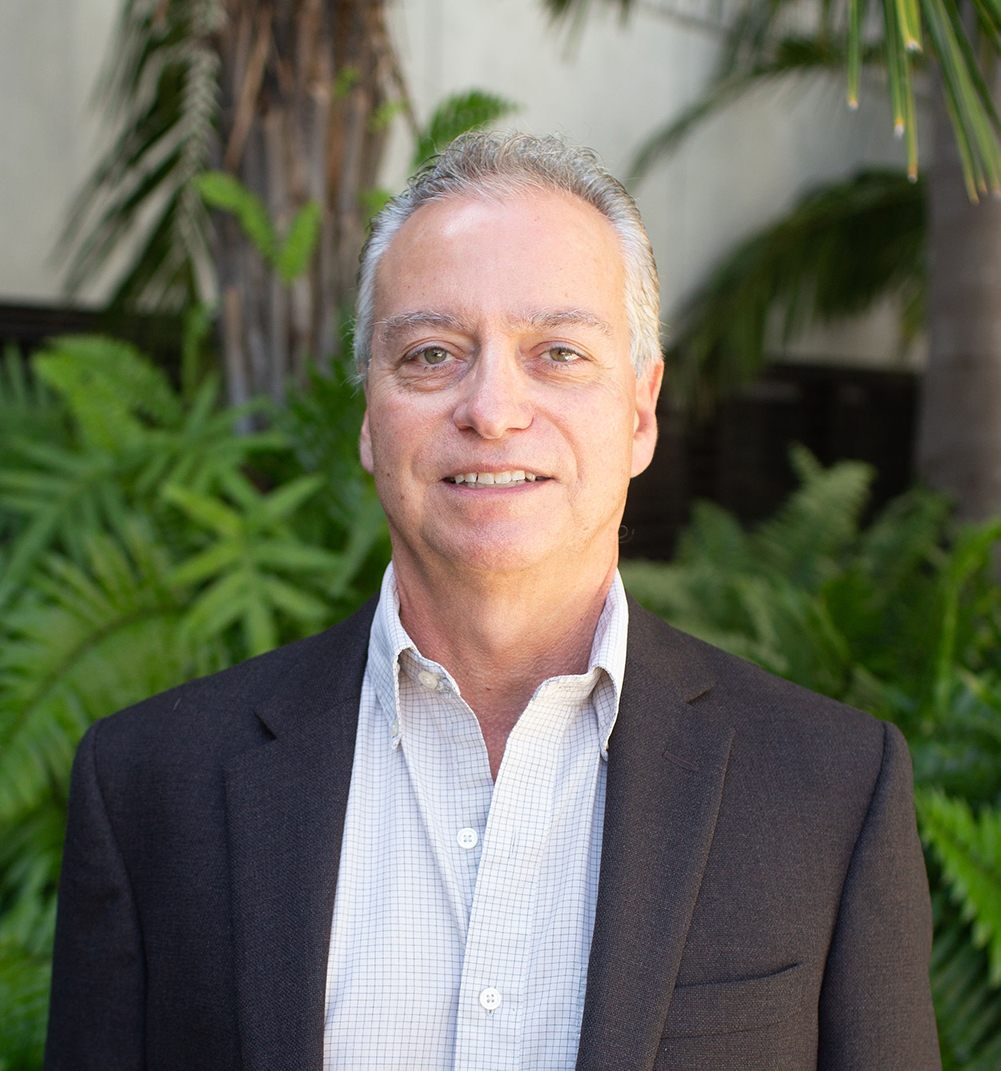
Anthony Paul DeCaprio Associate Professor; Director of the Forensic and Analytical Toxicology [...] 305-348-2195; 305-348-2611 [email protected] OE 116B

Lauryn DeGreeff-Silk Associate Professor 305-348-4047 [email protected] AHC1 249

Kenneth G. Furton Professor, Executive Director, Global Forensic and Justice Center 305-348-0022 [email protected] MARC 238

Max Houck Research Assistant Professor; Graduate Program Director 727-395-2511 [email protected] OE 116

Bruce McCord Professor 305-348-7543 [email protected] CP 313
Program Contacts
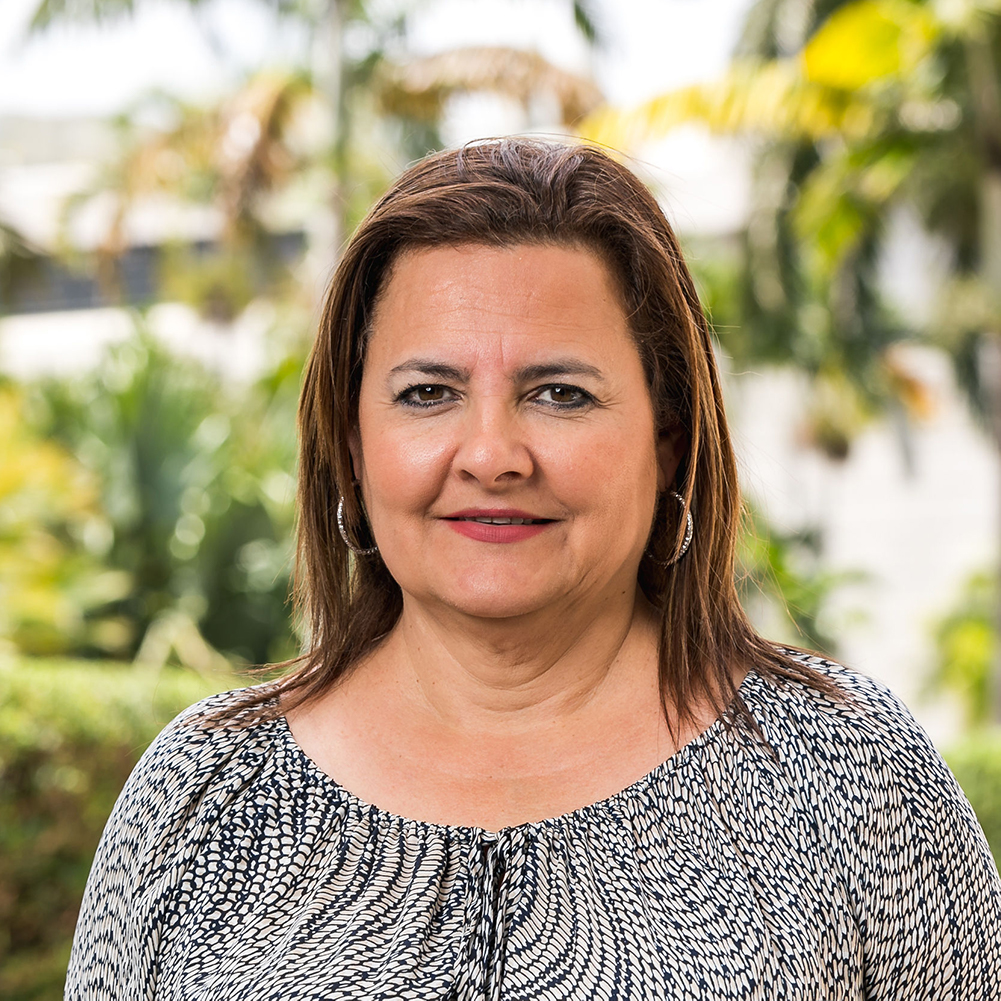
Magali Autie Office Specialist 305-348-3596 [email protected] CP 304B
Department of Forensic Science
College of humanities and sciences, doctoral studies.
While the Department of Forensic Science does not have its own Ph.D. program, we accept doctoral applicants through VCU's Integrated Life Sciences (ILS) program.
ILS is an interdisciplinary Ph.D. program through which students interested in molecular biology, drug analysis, forensic toxicology, forensic anthropology or trace evidence research can be accepted. Below you will find some of our students' sample dissertation topics from recent years.
Next Steps for Interested Students
- Read more about the ILS program, including information on admission requirements and degree requirements, at VCU Bulletin .
- Review our research faculty to identify someone whose research is in your interest area, and contact them directly to determine if they have an upcoming opening in their laboratory for a Ph.D. student. Do not apply directly to the ILS program without first communicating with the faculty member you are interested in working with; your application may not be successful.
Sample Dissertation Topics
| Faculty Lab | Topic |
|---|---|
| The Redesign, Evaluation and Validation, of a Commercially Viable High Resolution Melt Based Mixture Screening Tool for More Information - Earlier in The Forensic Workflow (Chastyn Smith) | |
| Development and Optimization of an Affinity Molecule-Based Cell Isolation Technique for Sexual Assault Samples (Brittany Hudson) | |
| The Effect of Synthetic Cathinone Chirality on Pharmacodynamics and Pharmacokinetics: Implications for Forensic Toxicology (Tyson Baird) | |
| The Impact of Vaping Ethanol on Impairment, DUI Investigations, and Formation of Ethanol Biomarkers Used in Drug Testing (Alaina Holt) | |
| The Development of a Novel Neonatal Oral Fluid Collection Device and Screening for the Prediction of Neonatal Abstinence Syndrome (Ashley Gesseck) | |
| Development and Evaluation of a Combinatorial RT-qPCR Multiplex for Forensic Body Fluid Identification (Carolyn Lewis) | |
| DNA Analysis and Postmortem Submersion Interval Estimation (PMSI) from the Microbiome of Porcine Skeletal Remains in a Freshwater Lake and River (Claire Cartozzo) |

Best Forensic Science colleges in the U.S.
A forensic science degree can lead to careers in a fast-growing and exciting field. You've seen crime shows on TV that depict teams of crime fighters, glamorously solving cases and protecting citizens. It's true that it takes a team of educated professionals to investigate a crime scene, conduct lab work, and produce evidence to convict bad guys. Though not always as glamorous as what we see on TV, an essential part of criminal investigation teams is forensic scientists.
Here, we'll offer a detailed look at the field of forensic science, what forensic science degree programs look like, the best forensic science colleges, and what types of jobs you can pursue after graduation from a forensic science degree program. Forensic science is a more diverse field than many people realize, so we'll include some of the lesser-known aspects of this highly rewarding, growing, and scientific field.
Best Forensic Science colleges in the U.S. for 2024
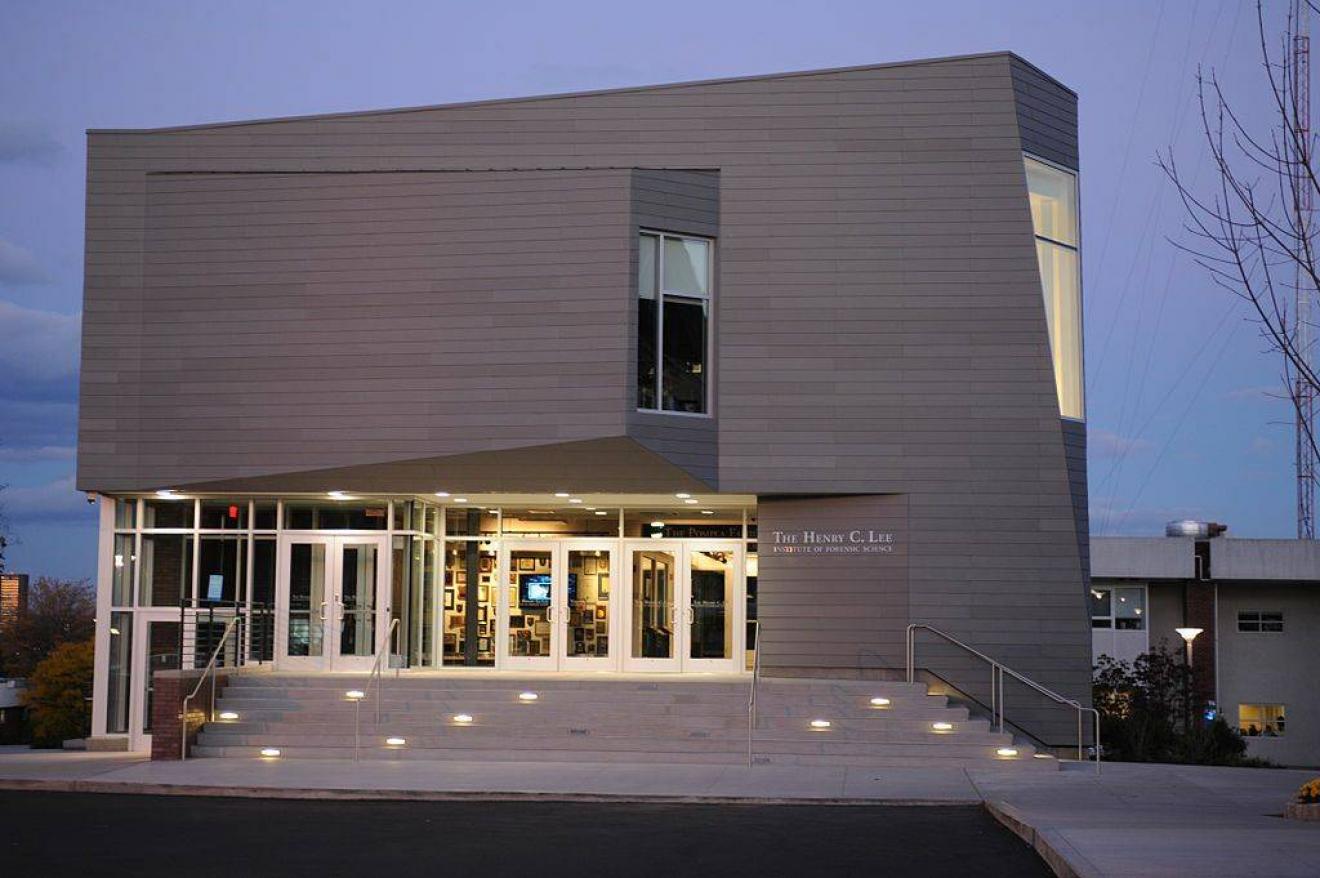
The University of New Haven’s Forensic Science program comes in at #1 in our list of best forensic science colleges. This program prepares students for a career in crime scene investigation at the local or federal level. This program includes courses in ballistics, chemistry, and psychology, along with general education requirements at the bachelor’s level. Classes are available both in-person and remotely, though some labs may include fieldwork and professional observation. Students at The University of New Haven can get experience in the form of internships and shadowing opportunities at the New Haven Police Department.

Syracuse University offers undergraduates the opportunity to enroll in their forensic science program, which is the first step for students interested in a career in criminal justice. It is common for students to take classes in chemistry and physics as an introduction to the broader field of forensic science. Syracuse offers a four-year path with opportunities to apply early to positions made available within their alumni network.

CUNY’s John Jay College of Criminal Justice program provides a foundation for undergraduate students that want to become involved in the justice system at multiple levels. Students interested in exploring this track learn skills like how to acquire and document evidence, and how to photograph a crime scene. Undergraduates at John Jay are required to complete an on or off-campus internship during their junior year, and complete calculus to graduate in four years.

For students interested in pursuing a forensic science degree in the state of Pennsylvania, Drexel University offers a competitive forensic track with professional observation opportunities throughout the Philadelphia metro area. Undergraduates are advised to enroll in theory and lab classes to gain hands-on experience that will be invaluable when they apply for professional roles post-graduation.

Virginia Commonwealth University, or VCU, has a forensic science degree program that emphasizes science courses and is organized to prepare students for professional roles immediately upon completion of their bachelor's degree. This program is structured to be completed onsite at VCU and provides students a range of local internship opportunities and seminars to further their understanding of crime scene investigation through work in on-campus forensic laboratories.
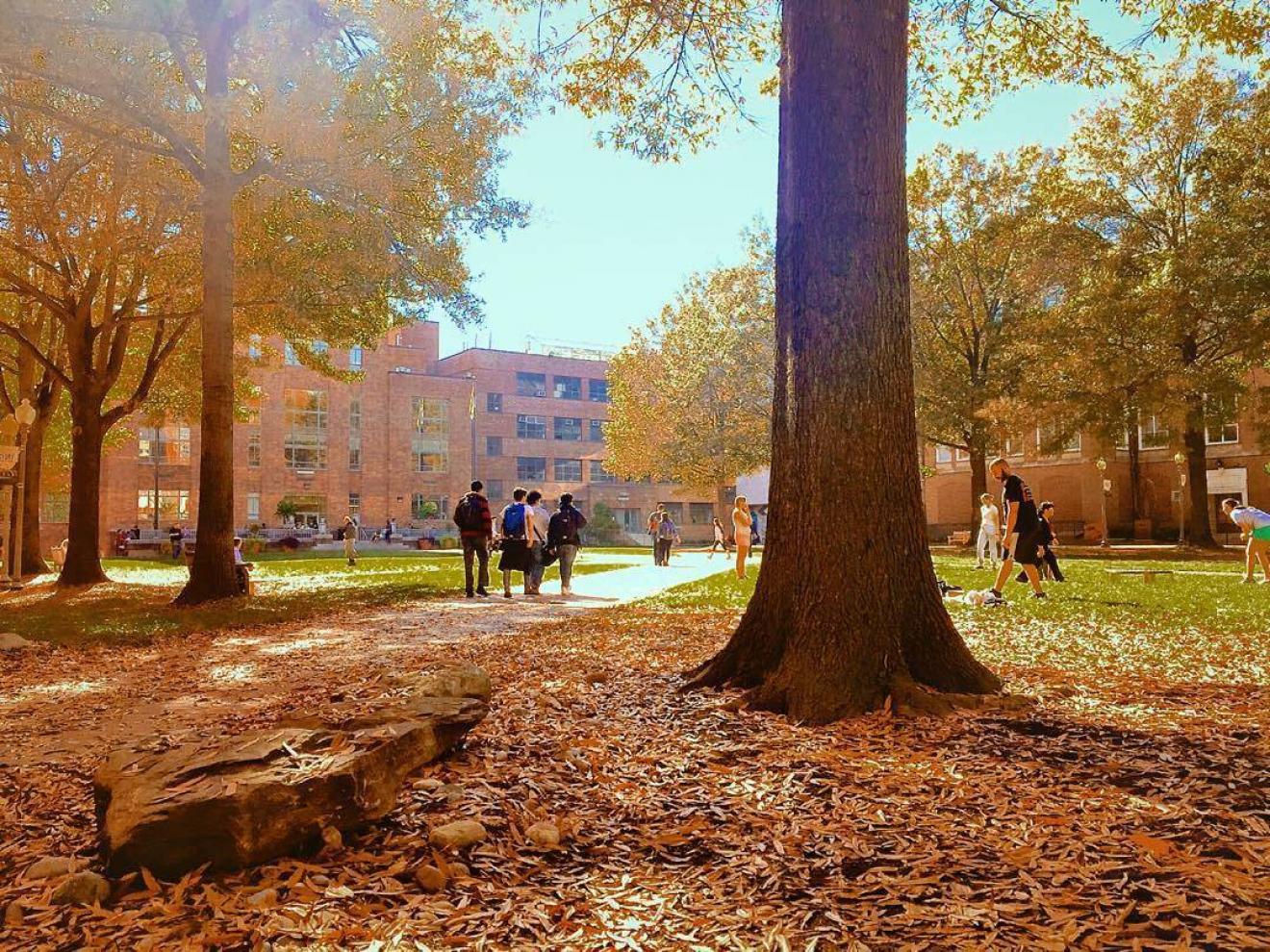
George Washington University’s Forensic Science department offers classes geared towards students preparing to enter into the field of criminal justice as a police officer, forensic scientist, or private investigator. Outside of the classroom, students have opportunities on campus to join forensic science clubs and secure internships in the Washington D.C. metro at agencies like the U.S. Department of Defense, and the FBI.

Hofstra University offers a bachelor’s degree in forensic science for students in Long Island that have an interest in crime scene investigation. Courses in this program include a combination of chemistry, physics, and eye-witness testimony, and students are recommended to declare their forensic science major before their junior year to complete the program before graduation. Anyone considering the school should note that Hofstra has a large network locally to assist recent graduates in post-graduation job placement.

Texas A&M-College Station’s forensic science program is organized for students interested in pursuing a criminal justice track. Applicants should note that lab instruction and professional internship experience are critical to this major and that graduates typically enter the workforce immediately after graduation if they don’t plan on pursuing a master’s program. Students in this program can take classes in ballistics, fingerprinting, and fire science.
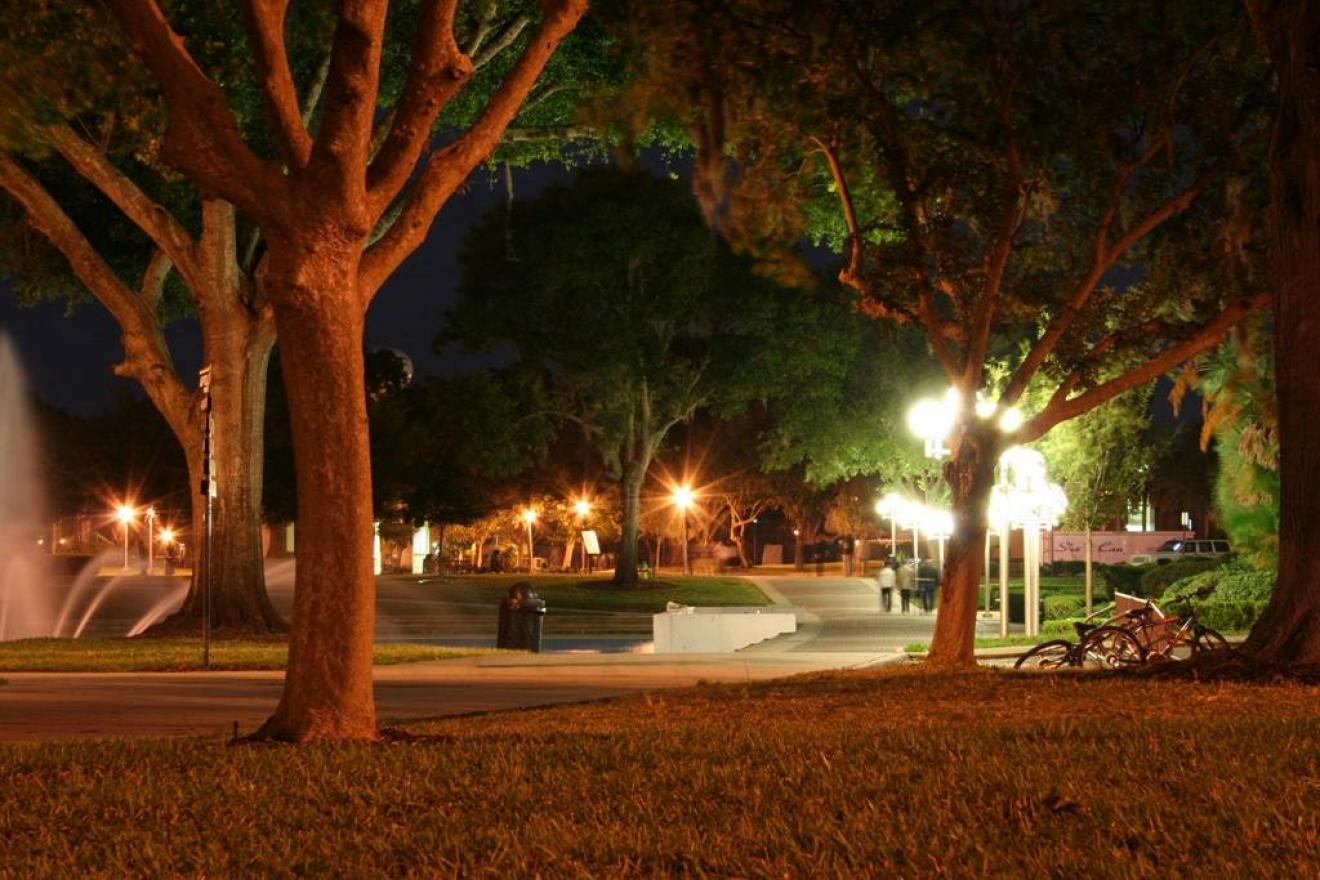
The University of Central Florida’s College of Criminal Justice is a top school in the Southeast for students interested in forensic science. Their forensic science program fosters professional growth for those interested in biochemistry, scientific evidence, and lab work. This program has been around since 1974, and the school expects job opportunities to climb up to 11% by 2029.

For Chicago residents with aspirations of pursuing a degree in forensic science, Loyola University Chicago offers a four-year program designed to prepare students for jobs in the field of criminal justice immediately after graduation. Students are advised to take classes in chemistry and anatomy, as well as in-person labs to gain experience in different roles within the investigative process. Many students elect to pursue internships locally at police precincts and local federal agency offices like the FBI Chicago Field office.
Top schools offering Forensic Science degrees in the U.S.
Forensic science.
- Forensic Science and Technology Schools
- Cyber/Computer Forensics and Counterterrorism Schools
- Criminalistics and Criminal Science Schools
- Financial Forensics and Fraud Investigation Schools
- Forensic Chemistry Schools
What is Forensic Science?
Forensic science is one of the fastest-growing fields available to college-goers today. Aspiring forensic science professionals should pursue formal training at a forensic science college or university to gain the necessary technical and scientific skills to participate in criminal investigations, conduct lab studies, and beyond. Forensic science colleges offer a range of degrees, from associate and bachelor's programs to master's degrees and doctorates.
Forensic science is an interdisciplinary field that draws on areas like pathology, toxicology, psychiatry, biology, and chemistry. In this way, you can expect to complete diverse coursework and experiential learning opportunities to expand your horizons.
Depending on the forensic science degree program, you'll find that many programs offer you the opportunity to take classes in a concentration area. Since the field of forensic science is quite diverse, you may encounter concentrations such as forensic psychology , environmental forensics, criminal justice , and cyber security . The focus of your degree also depends on which degree level you want to pursue and the strengths of your chosen program.
The best forensic science college is the one that aligns with your personal and academic needs. Whether online or in-person, you should be able to find a forensic science degree that won't break the bank. Let's take a closer look at the range of forensic science degrees available today, from associate to doctoral programs.
Forensic Science Degree Overview
Courses in forensic science degree programs.
Required courses for graduation vary among forensic science degree programs. Most programs, however, strive to offer learners similar foundational skills that most popular forensic science careers in the field demand.
Faculty ensure that students learn about the history of the field and general investigative techniques, first and foremost. Programs may also cover criminal justice topics, laws and evidence collecting, chemistry in forensics, and digital forensics. Here’s a look at several common courses you may encounter in your forensic science online program.
- Analysis of forensic evidence
- Criminal investigation
- General biology
- General chemistry
- Introduction to physics
- Forensic biology
- Human anatomy and physiology
Skills Learned In Forensic Science Degree Programs
Some of the most important skills you’ll acquire in an undergraduate forensic science degree program pertain to crime scene investigation, handling and analyzing evidence, and conducting lab procedures like analyzing DNA. Depending on your program and available concentrations, some of the new skills you’ll acquire include providing expert witness testimony, technical photography, crime scene reconstruction, general laboratory science procedures, and investigative processing techniques.
How Long Does It Take To Get A Forensic Science Degree?
From accelerated programs to part-time learners who continue working, note the varying length of these types of degrees. The duration of your forensic science degree depends on several factors. The length of your program largely depends on your availability and whether you enroll as a full- or part-time student.
Associate and master’s degrees in forensic science usually take full-time students about two years to complete. Bachelor’s degrees in this field often take 3-4 years to finish for those enrolled full-time. In most cases, full-time accelerated programs can shave off one year at any degree level, depending on the program and how quickly students can successfully complete coursework.
Part-time learners pursuing a forensic science degree online will take more time to finish. Associate and master’s degrees can take up to 3-4 years in these cases. Part-time students can expect to spend about 4-6 years completing forensic science bachelor’s degrees.
Choosing The Best Forensic Science Degree
There’s really no “best” forensic science degree program out there. Rather, it’s better to think about the best fit for your personal and academic needs. Each forensic science college comes with its own set of strengths based on the specialties of its faculty members and access to resources.
In that way, look for programs whose curricula will provide you with training in areas of forensic science that interest you. One of the tell-tale signs is if a school offers an official concentration or elective classes in a specific topic that you like, such as fire science, forensic chemistry, or biotechnology.
Secondly, a forensic science college should be a good fit for your educational goals as well as your budget and desired learning format. In addition to finding tuition rates that work for you, make sure you find a fully online or hybrid, asynchronous or synchronous, and standard or accelerated program that caters to your learning style.
Applying to Forensic Science Programs
To pursue a college degree in forensic science, you will need at least a high school diploma or GED certificate. Associate and bachelor’s degree programs will have similar requirements for applicants and usually do not expect incoming students to have experience in the field. Master’s programs, however, often require learners to have prior education or work experience in forensic science or a closely related area.
Admission Requirements For Forensic Science Colleges
Admission requirements vary among forensic science programs and degree levels. Most programs prefer applicants to possess a 3.0 or higher GPA at the high school or college level. Moreover, some schools may require applicants to submit standardized test scores from the ACT or SAT. Additional materials may include copies of official transcripts, letters of recommendation, a letter of interest or statement of career goals, and an application fee.
Associate Degree in Forensic Science
Associate degrees offer you a great introduction to the field of forensic science. You'll develop an understanding of major topics in the field, including the basics of scientifically evaluating physical evidence, fingerprint technology, and crime scene analysis. These programs also include an introduction to the types of lab work carried out by forensic scientists.
Associate degrees can prepare you for entry-level roles in the field. This level of training also prepares you to pursue a bachelor's degree in forensic science or a related field. In most cases, full-time students can expect to complete these programs in two years or less. In many cases, you'll find that your associate degree credits may transfer toward a bachelor's program, thus saving you time and money.
Bachelor's Degree in Forensic Science
While a bachelor's degree covers similar topics as an associate program, you can expect a more rigorous curriculum that's more expansive and in-depth. Bachelor's degrees require you to complete all of the required forensic science credits in addition to general education classes. You can expect to complete classes in criminal psychology, laws and regulations, professional ethics, and criminal psychology. You'll also need to complete a series of chemistry, biology, physics, and other physical science courses.
Full-time students typically complete these programs in four years or less. Upon completion of these programs, you'll be prepared for entry-level positions in forensic science. Depending on the role, you may also need some on-the-job training before you can work directly with law enforcement or other forensic science professionals at crime scenes or in laboratories.
Master's Degree in Forensic Science
A master's forensic science degree gives you the chance to build upon your undergraduate knowledge and pursue studies in a speciality area of the field. Available specialities will vary among colleges and universities, so be sure to investigate your options closely before applying. Popular concentration areas for forensic science degree-seekers at the master's level include forensic psychology, forensic toxicology, computer forensics, and forensic chemistry.
With a master's forensic science degree in hand, you'll be prepared to pursue a wide range of mid- to upper-level careers in law enforcement agencies, governmental or private laboratories, medical examiner's offices, and beyond. Your career path will be largely dependent on your concentration area or specialty that you develop throughout your master's program.
Doctoral Degree in Forensic Science
The most common doctoral degree in forensic science is the PhD. A doctorate of philosophy in forensic science gives you the chance to further refine your skills and become an expert in a particular area of the field. As part of these programs, you'll complete a variety of required and elective classes, most of which you'll choose with the help of a faculty member based on your academic interests.
Bear in mind that, like all PhDs, the PhD in forensic science is a research degree. These programs best serve students who are interested in pursuing high-level research jobs or academic positions at colleges or universities. The PhD is not for the faint of heart and often requires about 3-6 years to complete. Be sure to get some advice from a trusted advisor or faculty member before applying to PhD programs.
Certification and Licensure in Forensic Science
There are no legal requirements in terms of certification or licensure that you’ll need to meet in order to work in most forensic science roles. Depending on the position, such as some law enforcement positions or work with federal entities like the FBI, you might need to obtain certification from the National Crime Information Center (NCIC). This involves taking a certification course and passing an open-book written exam.
What Can I Do with a Degree in Forensic Science?
The wide range of careers you can pursue with a forensic science degree largely depends on your level of training and areas of interest. Graduates with an associate or bachelor's degree may qualify for entry-level positions in forensic science, such as social science technician or forensic science technician. According to the Bureau of Labor Statistics (BLS), these professionals make an annual median forensic science salary of $36,570 and $64,250 , respectively.
Graduates with a master's degree can compete for similar roles as forensic scientists, but often those with jobs with higher pay that require a more specialized skill set, such as toxicologist, DNA analyst, chemist, and crime scene investigator.
For those with a PhD in forensic science, it's common to pursue research positions or academic roles in higher education. Depending on their rank, professors make a median annual wage of $81,250 . The highest 10% of earners in these academic roles earn more than $172,130 per year, according to the BLS.
Earning an Online Forensic Science Degree
With rapidly advancing technologies in distance learning over the last several years, many students today pursue their training and degrees online. Learners can now save time and money by completing requirements and attending their forensic science college online. Moreover, distance students with a day job or familial obligations usually enjoy the scheduling flexibility that often comes with forensic science degrees online. Here’s a list of the pros and cons of online learning for aspiring forensic science professionals.
Pros And Cons Of Online Programs In Forensic Science
| Asynchronous learning formats allow students to complete coursework on their own time with few to no scheduled class meetings. | The flexibility of online learning can sometimes be challenging for students who learn best in highly structured environments. Distance students need to be self-starters and well-organized to stay on track. |
| Those with full- or part-time jobs can find remote forensic science degree programs that fit with their busy schedules. | Online learning requires students to complete a lot of bookwork on their own, often with very little face-to-face interaction with professors or other students. This can be a difficult change for those used to traditional in-person studies. |
| Many colleges and universities today offer lower online tuition rates, or match in-state tuition rates, for remote learners. | Online students do not have the same socializing and collaborative opportunities as students in traditional classrooms. |
| Online students can save money by avoiding costly commutes to and from campus. | Many online forensic science degree programs use online lectures, slides, and PDFs as learning materials. For students who prefer hardcopy learning materials, required materials may not be available in a tangible format. |
How Long Do Online Courses Take To Complete?
Online forensic science colleges typically follow a traditional semester- or quarter-based schedule. This is especially true for synchronous learning formats where you’ll take virtual classes simultaneously with other students with regularly scheduled online meetings.
Class may also be offered in an asynchronous accelerated format. In these cases, students can work at their own pace and sometimes finish their requirements in less time than synchronous learners. Keep an eye out for degrees with competency-based formats, wherein students can get credit for work experience or forensic science knowledge they already have.
Forensic Science Career and Salary Overview
If you’re here, you could be wondering, “what is forensic science?” Well, you might have seen characters in your favorite crime and detective shows who investigate crime scenes and evidence with advanced technologies and complex reasoning. In real life, people who carry out that work is forensic scientists!
Professionals with a forensic science degree play vital roles in supporting police officers, detectives, and other law enforcement personnel at the local, state, and federal levels. They can get good jobs that are in demand today. Forensic scientists make about $61,930 per year and will see approximately an 11% growth in available positions between 2020-2030 . That means jobs for trained forensic scientists are growing at twice the average rate of all other occupations in the U.S.
The majority of these professionals work in local government and law enforcement as forensic science technicians. Depending on your training, interests, and background, however, you could find yourself working in roles such as digital forensics analyst, scientific lab technician, biomedical scientist, toxicologist, or detective. Let’s take a closer look at popular careers for workers with a forensic science degree, including their earnings and job outlook.
Forensic Science Degree Salaries, Careers, And Outlook
Career: Forensic Science Technician
Salary: $ 61,930 Outlook (2020-2030): 11%
Description: These technicians work in laboratories, offices, and crime scenes of all varieties. They typically work in teams with law enforcement and other specialists to solve new and old cases. Daily responsibilities include sketching or photographing crime scenes, collecting evidence, recording observations, and cataloging and preserving evidence.
Career: Digital Forensics Analyst
Salary: $95,270 Outlook (2020-2030): 9%
Description: Digital forensics analysts conduct computer- and online-focused investigations of criminal activity. They strive to document evidence from online sources to support law enforcement, fraud, and counterintelligence investigations. They typically hold a bachelor’s or master’s degree in addition to on-the-job training.
Career: Police Officer or Detective
Salary: $ 66,020 Outlook (2020-2030): 3 %
Description: Learners with training in crime scene investigation and forensics can also pursue roles in law enforcement. With their specialized training, they may qualify for specialized criminal investigatory positions as agents or special agents with local, state, or federal law enforcement. Depending on their goals, these workers can pursue roles in this area with an associate, bachelor’s, or master’s degree.
Career: Fire Inspector
Salary: $ 63,080 Outlook (2020-2030): 6 %
Description: Fire inspectors provide valuable services to both citizens and the environment. Some focus on fire codes and ensuring that federal, state, and local laws are enforced. Others specialize in investigating fire outbreaks and explosions. Those with expertise in studying and preventing forest fires are especially in demand today.
Forensic Science FAQ
What is a forensic science degree.
- A forensic science degree is an academic credential showing your completion of a program from an accredited college or university. These programs prepare you for various in-demand careers in forensic science, legal studies, criminal justice, and beyond.
What is the best major for forensic science?
- The best major in forensic science is one that meets your personal and academic goals. You’ll get the most out of a program that puts you on a track to success in your desired area of the field. The best schools for forensic science are those that prepare you for careers in the field that interest you. Moreover, you'll want to find one that's in your budget and delivers courses in your preferred format – online, in-person, or hybrid. This especially goes for adult students who may have complex schedules or full-time jobs.
Is a forensic science degree worth it?
- Yes. Earning a forensic science degree can prepare you for exciting and good-paying careers. The BLS predicts positive growth in the number of available positions for forensic science professionals between 2020-2030. Popular positions like forensic scientist technicians will see a 16% increase in available jobs in the U.S.
How much does a forensic scientist make?
- Forensic scientists make well above average wages. According to the BLS, professionals in popular roles, such as forensic science technicians, earn a median annual salary of $60,590 . That’s $18,640 more per year than the median annual wage of all other occupations in the U.S. The top 10% of earners in the field make a forensic science salary that's more than $100,910 per year.
How long does it take to become a forensic scientist?
- Most good-paying and in-demand careers in forensic science expect applicants to possess a bachelor’s degree or higher. For full-time students at this level, a bachelor’s forensic science degree takes about four years to complete. Students in online accelerated programs may finish in about three years.
Is forensic science a hard major?
- Forensic science degrees typically require students to learn a vast amount of new or unfamiliar information. Since much of this knowledge and hands-on know-how is specialized, forensic science colleges can present you with challenging course requirements. In this way, a forensic science degree may be more involved than other popular college majors.
List of all Forensic Science colleges in the U.S.
| School | Average Tuition | Student Teacher Ratio | Enrolled Students | |
|---|---|---|---|---|
| West Haven, CT | 5/5 | 36 : 1 | 8,819 | |
| Syracuse, NY | 5/5 | 19 : 1 | 22,698 | |
| New York, NY | 2/5 | 34 : 1 | 13,921 | |
| Philadelphia, PA | 5/5 | 21 : 1 | 22,344 | |
| Richmond, VA | 4/5 | 22 : 1 | 28,082 | |
75 Best colleges for Forensic Science in the United States
Updated: February 29, 2024
- Art & Design
- Computer Science
- Engineering
- Environmental Science
- Liberal Arts & Social Sciences
- Mathematics
Below is a list of best universities in the United States ranked based on their research performance in Forensic Science. A graph of 229K citations received by 9.29K academic papers made by 75 universities in the United States was used to calculate publications' ratings, which then were adjusted for release dates and added to final scores.
We don't distinguish between undergraduate and graduate programs nor do we adjust for current majors offered. You can find information about granted degrees on a university page but always double-check with the university website.
1. Michigan State University
For Forensic Science

2. University of Minnesota - Twin Cities

3. University of Tennessee - Knoxville

4. Iowa State University

5. Texas A&M University - College Station

6. University of California - Davis

7. Cornell University

8. University of Iowa


9. Purdue University

10. Baylor College of Medicine

11. Pennsylvania State University

12. Ohio State University

13. University of Nebraska - Lincoln

14. CUNY John Jay College of Criminal Justice

15. University of Arkansas for Medical Sciences

16. University of North Texas

17. North Carolina State University at Raleigh

18. Duke University

19. Yale University

20. University of Florida
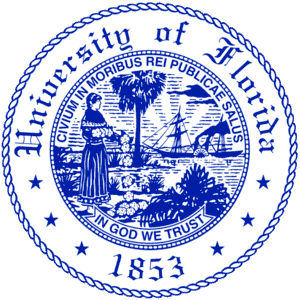
21. University of Wisconsin - Madison

22. Washington University in St Louis

23. University of California - Berkeley

24. University of Washington - Seattle

25. University of Illinois at Chicago

26. University of North Texas Health Science Center

27. University of Central Florida

28. West Virginia University

29. University of Virginia

30. SUNY at Albany

31. University of Illinois at Urbana - Champaign

32. Stanford University

33. Sam Houston State University

34. University of Arizona

35. Florida International University

36. Virginia Polytechnic Institute and State University

37. University of California - Irvine

38. Arizona State University - Tempe

39. University of California - Riverside

40. Washington State University

41. University of Southern California

42. University of Hawaii at Manoa

43. New York University

44. University of Pennsylvania

45. Kansas State University

46. Johns Hopkins University

47. George Washington University

48. University of Maryland - College Park

49. University of Alabama at Birmingham

50. Rutgers University - New Brunswick

51. University of New Haven

52. University of Texas Health Science Center at Tyler

53. University of South Florida

54. University of Kentucky

55. University of Missouri - Columbia

56. University of Massachusetts - Amherst

57. South Dakota State University

58. University of New Mexico

59. University of Pittsburgh

60. University of Texas at Austin

61. Johnson University

62. Drexel University

63. University of Michigan - Ann Arbor

64. University at Buffalo

65. Virginia Commonwealth University

66. Indiana University - Purdue University - Indianapolis

67. University of California-San Diego

68. Harvard University

69. Auburn University

70. Louisiana State University and Agricultural & Mechanical College

71. University of Alabama

72. University of Massachusetts Medical School Worcester

73. University of Georgia

74. Columbia University

75. University of California - Los Angeles

The best cities to study Forensic Science in the United States based on the number of universities and their ranks are East Lansing , Minneapolis , Knoxville , and Ames .
Liberal Arts & Social Sciences subfields in the United States

- Skip to main content

- All countries /
- North America /
- All study levels /
- Postgraduate /
- Applied and Pure Sciences /
- Forensic science
101 Universities in the USA offering Postgraduate Forensic science degrees and courses
More Information
Are you looking for Postgraduate courses in Forensic science? Here you can find course providers offering full-time, part-time, online or distance learning options.
You've reached your limit of 10 Favourites
West Virginia University
University of akron, university of north carolina wilmington.

Illinois Institute of Technology
THE World Ranking: 351

Bowling Green State University
THE World Ranking: 1001

Florida Institute of Technology
THE World Ranking: 801

Pace University

Southern Illinois University Edwardsville

University of Cincinnati

Iowa State University

George Washington University
THE World Ranking: 201

George Mason University
THE World Ranking: 401
- Forensic Chemistry
- Forensic Science (Non-Medical)
- Alabama (inc. Montgomery)
- Arizona (inc. Phoenix)
- California (inc. Sacramento)
- Colorado (inc. Denver)
- Connecticut (inc. Hartford)
- Washington, D.C.
- Florida (inc. Tallahassee)
- Illinois (inc. Springfield)
- Indiana (inc. Indianapolis)
- Iowa (inc. Des Moines)
- Kansas (inc. Topeka)
- Kentucky (inc. Frankfort)
- Maryland (inc. Annapolis)
- Massachusetts (inc. Boston)
- Michigan (inc. Lansing)
- Minnesota (inc. St. Paul)
- Mississippi (inc. Jackson)
- Missouri (inc.Jefferson City)
- Nebraska (inc. Lincoln)
- New Hampshire (inc. Concord)
- New Jersey (inc. Trenton)
- New York (inc. Albany)
- North Carolina (inc. Raleigh)
- North Dakota (inc. Bismarck)
- Ohio (inc. Columbus)
- Oklahoma (inc. Oklahoma City)
- Pennsylvania (inc. Harrisburg)
- Rhode Island (inc. Providence)
- Tennessee (inc. Nashville)
- Texas (inc. Austin)
- Vermont (inc. Montpelier)
- Virginia (inc. Richmond)
- West Virginia (inc. Charleston)
- Study level:
- Postgraduate
- Graduate Certificates & Diplomas
- Masters Degrees
- Doctoral Degrees
- Pre-masters
- Study mode:
- Online/Distance
Filter your results
Tell us about you.
- Nationality Select country Select country
- My current qualification is from Select country Yes No Select country Select country
- Current qualification {0} is not applicable for the study level you selected below. Qualification Qualification
- Grade type (only one grade type for your qualification) Grade type Grade type
- My score (current or expected) Please select Please select Please select Please select Please select Please select
Tell us your preferences
- Subject Forensic science
- Qualification Postgraduate
- Destination USA
- Study options
- Annual tuition fees
Subject areas
Qualification, destination.

Print Options
- Undergraduate
- Programs A-Z
- Courses A-Z
- Colleges and Departments
Catalog Menu
- Academic Policies & Procedures
- Financial Information
- Support Services
- College of Arts and Media
- College of Business Administration
- College of Criminal Justice
- College of Education
- College of Health Sciences
- College of Humanities and Social Sciences
- College of Osteopathic Medicine
- School of Agricultural Sciences
- Department of Biological Sciences
- Department of Chemistry
- Digital and Cyber Forensic Science, PhD
- Computing and Data Science, MS
- Digital Forensics, MS
- Information Assurance and Cybersecurity, MS
- Cyber Security, Graduate Certificate
- Data Assurance, Graduate Certificate
- Data Science, Graduate Certificate
- Digital Investigation, Graduate Certificate
- Department of Engineering Technology
- Department of Environmental and Geosciences
- Department of Mathematics and Statistics
- Department of Physics and Astronomy
- Dual Degree Programs
- Course Descriptions
- Accreditations
- Administrative Officers
- Institutional Mission Statement
- President's Welcome
- La Bienvenida de la Presidenta
- Degrees Offered
- Undergraduate Catalog
- Skip to Content
- Catalog Home
- Institution Home
- Request Info
- Give to SHSU

- Graduate and Professional
- Graduate And Professional |
- Colleges & Departments |
- College of Science and Engineering Technology |
- Department of Computer Science |
Ph.D. in Digital and Cyber Forensic Science
The Doctor of Philosophy in Digital and Cyber Forensic Science is designed to produce students of the digital forensics and cyber-security realms with the technical skills, critical thinking ability, problem-solving skills, and advanced, discipline-specific knowledge to allow them to advance into leadership positions in business and industry as well as academia. This is accomplished by demonstrating the ability to perform independent and collaborative original research, the successful completion of academic coursework, hands-on experience in the laboratory, and collaboration with digital forensics and cyber-security agencies, institutes, and partners. The program will provide students with the theoretical, conceptual, methodological, and computational skills needed to understand the role of digital and cyber forensic science in post technological societies. The program will allow students to explore the potential for forensically sound digital data capture and analysis and to develop new tools and methods for handling digital and cyber forensic evidence. In doing so, this program has, as its primary focus, research into the computational and scientific basis for forensic and cyber technologies.
Additional information : Reference the Program Landing Page for additional information, such as cost, delivery format, contact information, or to schedule a visit.
The Ph.D. in Digital and Cyber Forensic Science is a full-time, on campus program. Admission to the program requires devoting a significant amount of time to the program. Students are admitted as part of an annual cohort and have a fixed program of study in the first two years of the program.
Applicants seeking admission to the doctoral program in forensic science must submit the following directly to the Office of Graduate Admissions :
- Graduate Admissions Application
- Application Fee
- Bachelor's degree conferred by a regionally accredited institution in computer science, digital forensics, or a closely related field
- Official transcript(s) from degree granting institution(s)
- Official transcripts from all colleges/universities attended
- GPA of 3.5 or higher
- Program Application
- Personal statement , not to exceed 1000 words
- Three letters of recommendation. A minimum of two letters must be from faculty who are sufficiently acquainted with the student to comment on potential for success in the doctoral program
- Current resume or vita
- In some instances, a personal interview may be requested.
The program requires the completion of a minimum of eighty-five hours of graduate credit, as prescribed in the degree plan.
Students must register full-time and maintain a 3.0 grade point average in all courses. In order to advance to candidacy, students must have successfully completed forty-six graduate credit hours of coursework and internship, submit a portfolio for review, and pass Comprehensive Examinations. Once the doctoral program committee determines that the portfolio, proposal, and comprehensive examinations are satisfactory, the student may enroll in dissertation credits.
A minimum of fifteen hours of dissertation credits are required, and students must maintain continuous enrollment in DFSC 8370 Dissertation until they graduate. Students must complete and defend a doctoral dissertation, which is the product of original scholarly research and is of sufficient publishable quality to represent a meaningful contribution to knowledge in the field of digital and cyber forensic science.
The Ph.D. in Digital and Cyber Forensic Science requires the completion of 85 credit hours beyond the bachelor's degree. Students complete:
| Code | Title | Hours |
|---|---|---|
| Requirements | ||
| Core Coursework | 52 | |
| Dissertation Research | 15 | |
| Electives | 12 | |
| Internship | 6 | |
| Total Hours | 85 | |
The curriculum is designed to deliver an essential core curriculum in digital and cyber forensic science, together with specialized electives and intensive research in the area of interest. Students are expected to fulfill the requirements during four to five years of full-time study.
| Code | Title | Hours |
|---|---|---|
| Ph.D. in Digital and Cyber Forensic Science | ||
| File System Forensics | 3 | |
| Cyber Forensics Principles | 4 | |
| Seminar in Digital Forensics | 4 | |
| E-Discovery | 3 | |
| Ethics for Digital Forensics | 3 | |
| Digital Forensics Laboratory Management | 3 | |
| Digital Forensics Tools & Techniques | 3 | |
| Operating System Forensics | 3 | |
| Network Forensic Analysis | 3 | |
| Mobile Device Forensics | 3 | |
| Live System & Memory Forensics | 3 | |
| Digital Forensics Research Methods | 3 | |
| Computational Forensics | 3 | |
| Scientific Communications | 3 | |
| Internship | 6 | |
| Law And Forensic Sciences | 2 | |
| Fundamentals of Criminalistics | 3 | |
| Statistical Methods for Decision Making | 3 | |
| Prescribed Electives | ||
| Select 4 of the following: | 12 | |
| Cryptography & Steganography | ||
| Cyber Warfare & Terrorism | ||
| DF Infrastructure | ||
| Cloud Computing Forensics | ||
| RAID & Remote System Forensics | ||
| Intrusion Forensic Analysis | ||
| Malware Forensic Analysis | ||
| Social Network Forensics | ||
| Commercial Tool Verification | ||
| Dissertation | 15 | |
| Total Hours | 85 | |
DFSC 7106 must be taken for a total of four credit hours.
Once enrolled in DFSC 8370 , students must enroll in this course every semester until graduation.
The Texas Higher Education Coordinating Board (THECB) marketable skills initiative is part of the state’s 60x30TX plan and was designed to help students articulate their skills to employers. Marketable skills are those skills valued by employers and/or graduate programs that can be applied in a variety of work or education settings and may include interpersonal, cognitive, and applied skill areas.
The Ph.D. in Digital and Cyber Forensic Science is designed to provide graduates with the following marketable skills:
- Solve complex cybersecurity-related problems.
- Apply theoretical principles to the development of digital forensics tools and techniques.
- Post-secondary teaching capability.
- Technical communication ability.
- Strong research-oriented capabilities.
- Academic Calendar
- Academic Policies & Procedures
- The Woodlands Center

Sam Houston State University
Huntsville, Texas 77341 (936) 294-1111 | (866) BEARKAT
© Copyright Sam Houston State University. All rights reserved.
Maps & Contacts
- University Contacts
- Personnel & Department Search
- Contact the Web Editor
- Office of the President
- Administration
- Faculty & Staff
- State of Texas
- Open Records
- Emergency Policies & Procedures
- Texas Homeland Security
- Texas Veterans Portal
- Report Fraud and Abuse
- The Texas State Auditor's Office Hotline
- Online Institutional Resumes
- Governor's Committee on People with Disabilities
- Where the Money Goes
- Compact with Texans
- College Portrait
- HB 2504 Compliance
- Web Site Accessibility

Print this page.
The PDF will include all information unique to this page.
A PDF of the 2023-2024 catalog.
Admissions Visit Opportunities
Master of science in forensic science.
Forensic science is a broad, interdisciplinary field in which the natural sciences are employed to analyze and evaluate physical evidence in matters of the law.
We have a reputation
The master’s program in forensic science at the University of New Haven has a worldwide reputation for preparing top-quality professional forensic scientists. One of the original forensic science programs in the country, our master’s program in forensic science will provide you with the theoretical and practical knowledge necessary to apply analytical and scientific methods to criminal investigation.
Through concentrated study in our laboratories, you will obtain unparalleled hands-on experience that you can apply immediately in your chosen career. In addition to a sequence of core coursework, you will complete a series of electives.
Program Mission
To thoroughly prepare forensic science majors for careers in forensic science, natural sciences, and criminal justice professions, as well as post-graduate educational or training opportunities.
Program Outcomes
- Students can demonstrate proficiency in the proper use of various instruments, equipment, or technical procedures.
- Students recognize and identify common forms of physical and pattern evidence, and can properly interpret related examinations of this evidence.
- Students can describe major ethical and professional guidelines and principles.
Important note for all interested applicants: "Those seeking careers in this field should be aware that background checks similar to those required for law enforcement officers are likely to be a condition of employment." - Education and Training in Forensic Science: A Guide for Forensic Science Laboratories, Educational Institutions, and Students, page 7 . Read this document here.
Program-Specific Admissions Requirements
In addition to the general University application requirements, prospective M.S. Forensic Science students are required to meet the following criteria:
- Possession of an undergraduate degree in a natural science or a recognized forensic science program, with a preference for completion from a FEPAC-accredited program. Candidates should have completed two semesters of lab-based general chemistry, two semesters of lab-based organic chemistry, and instrumental analysis. Additionally, completing at least one semester of biochemistry, physics, and an upper-level math course is highly recommended.
- A minimum GPA of 3.3 is expected, with occasional exceptions considered based on the student's degree program, undergraduate institution, and the quality of grades achieved in science and mathematics courses.
- Successful completion of the Graduate Record Examination (GRE) with scores at or above the 50th percentile and quantitative/analytical scores at or above the 70th percentile.
- Submission of at least two letters of recommendation is mandatory. These letters should preferably be from science professors who can speak to the student's academic and laboratory capabilities and assess the potential for success in a graduate program with a required thesis component.
Student Success and Outcomes
If you are a scholar or professional who is determined to excel, the University of New Haven is the place for you. Click here to see where those who earned a master’s degree in forensic science are employed.
- Accredited by the Forensic Science Education Programs Accreditation Commission (FEPAC)
- Expert faculty with professional experience in key positions such as lab directors, supervisors, and crime-scene bench analysts.
- A four-semester program with flexible class times and offerings
- Thesis required
The Thesis Researchers in the University of New Haven’s M.S. Forensic Science program have persevered and continued their thesis research even through the hardships brought about by the COVID-19 pandemic.
The following are some of the thesis research topics that has been conducted by students in the program:
- 2021 Graduate Research Award Recipient: Correlation Between Tooth Translucency, Crystallinity, and DNA Preservation in Teeth for Unidentifiede Huan Remains (UHR) Investigations – Paul M. Yount
- 2020 Graduate Research Award Recipient: A Sine-Based Human-Dog QPCR Assay For Species Identification and DNA Quantification – James Liang
- 2019 Graduate Research Award Recipient: Construction of a Reference Allelic Ladder for Odocoileus STR Multiplex – Jolene Strand
- Determining the interference of Lactate and Lactate Dehydrogenase in an Ethanol Enzyme Assay – Julia Liebl
- Small RNA Sequencing and RT-qPCR Validation of Forensically Relevant Body Fluids – Karly Johannsen
- Multiple Contacts of Drug contaminated Fingermarks and Their Analysis with Raman Microspectroscopy – Victoria DePrimo
- Forensic Characterization and Discrimination of Manila Envelopes – Maria Isabel Sanchez Melo
You can read all the current and past research that UNH Graduate Students have been working on at: https://digitalcommons.newhaven.edu/masterstheses/
Envision Your Future
The information below is designed to show the many possible careers you could pursue with your major. The research is provided by Encoura, the leading research and advisory firm focused exclusively on higher education. It includes median national salaries and industry growth projections over the next decade. Click here to view the full report .
Detectives and Criminal Investigators
2% Growth 2021-2030
Forensic Science Technicians
10% Growth 2021-2030
Clinical Laboratory Technologists and Technicians
9% Growth 2021-2030
This course will provide information related to the various aspects of expert witness testimony, from "marketing" skills and good communication techniques to managing difficult questions and ethical issues. The expectations of the legal and scientific communities will be explored using case examples and exercises that point to the conflicts that sometimes may arise from these different perspectives. Students will participate in a moot court testimony session in which they will demonstrate their expert witness knowledge and ability to effectively communicate in a court setting.
The comparison and individualization of physical evidence are presented in lectures and carried out in the laboratory. The theories and practice of microscopic, biological, immunological, and chemical analysis are applied to the examination of blood, semen, and other body fluids.
Methods of modern biochemistry, genetics and molecular biology as applied to the examination and individualization of biological evidence in forensic science. Includes discussion of prior methods up to the most current used today in forensic biology.
This course is one in a series of offerings designed to meet the changing educational needs in specialized areas of forensic technology. It addresses theoretical and practical aspects of capillary electrophoresis as a new tool applied to the forensic sciences. The course will cover the theoretical principles of capillary electrophoresis, how to use and troubleshoot the instrumentation as well as the analysis of different types of samples commonly found as evidence in forensic laboratories. This course typically runs on an accelerated schedule and includes a significant laboratory component.
The University of New Haven offers a wide variety of in-depth courses that create a transformational educational experience for our students. To view the complete list of courses you'll take while pursuing a Masters of Science in Forensic Science, check out the Academic Catalog:
Forensic Science, M.S.
Forensic Investigative Genetic Genealogy Certificate
Learn from professors who are dedicated to your success.
Our faculty are leaders and innovators in their fields, bringing both deep professional experience and academic rigor to the classroom.
Get an inside look at what differentiates the University of New Haven and how your experiences as a student will prepare you for success.

STEM Designated

Career Development

Graduate Student Housing

Nationally Recognized
Nationally recognized center for career development.
All University of New Haven students have access to the many resources available through the University’s Career Development Center , which has been named one of the best in the nation by The Princeton Review .
From career assessments, networking, and job shadowing to on-campus interviews and salary negotiation, the Career Development Center provides the skills and connections to identify a meaningful career and an opportunity to pursue your passion.

The Charger Blog
Immersive Summer Experience Enables High Schoolers to Gather Evidence and Collaborate to Piece Together the Scene of a Crime
At the University’s Crime Scene Investigation (CSI) Academy, high school students from across the state and the country learned what it takes to be a crime scene investigator, analyzing a crime scene and presenting their findings to CSIs who work in the field.
Various Dates
- Graduate Visit Opportunities
An advanced degree from the University of New Haven will help you take your career to the next level. Each program offers convenient scheduling, personalized attention, and state-of-the-art facilities. View Application Requirements
The University of New Haven Graduate School is an excellent value with reasonable tuition. Of course, you will still have bills to pay and the Financial Aid office can help. Learn More
Get Information
- Bachelor of Science in Forensic Science -...
- Henry C. Lee College of Criminal Justice and...
- University Ranked Best in the Country to Study...

COMMENTS
The School of Forensic Sciences' faculty offer students a broad foundation in forensic sciences including science-based curriculum and hands-on training with both on-campus and online courses are available. Our qualified faculty research a wide-range of topics from crime scene analysis to toxicology to the effects of explosions and arson.
Studying Forensic Science in United States is a great choice, as there are 4 universities that offer PhD degrees on our portal. Over 957,000 international students choose United States for their studies, which suggests you'll enjoy a vibrant and culturally diverse learning experience and make friends from all over the world.
PhD programs in forensic anthropology will allow students to deepen their understanding of how human remains and other evidence can help in the legal process. University of Florida. The University of Florida (UF) in Gainesville provides a PhD program in biological anthropology focusing on forensic science.
The Doctor of Forensic Sciences degree will provide applied graduate education and training at the doctoral-level in forensic sciences (60 credit hours). Given the current conditions within our society, the need for a professional, non-research oriented doctoral program for forensic sciences practitioners has never been greater.
Though programs differ across colleges and universities, a PhD in Forensic Science may provide a research component that studies techniques and concepts related to forensic phd. This may include topics such as statistical analysis, communication skills, quantitative methods, and foundations of criminalistics.
The PhD in Forensic Science is designed to provide graduates with the following marketable skills: Familiarity with legal, ethical, and quality assurance issues. Application of statistical concepts to forensic science. Familiarity with consensus-based scientific standards in forensic science. Advanced instrumental understanding and technical ...
The PhD in Forensic Science requires the completion of 86 credit hours beyond the bachelor's degree. Students complete a total of 43 credit hours of core coursework, a minimum of 15 credit hours of dissertation research and an additional 28 credit hours of electives. The curriculum is designed to deliver an essential core curriculum in forensic ...
The GW Department of Forensic Sciences offers graduate study in crime scene and forensic investigation, forensic chemistry and forensic molecular biology. ... Forensic Science Alumnus Helps With COVID-19 Crisis . April 10, 2020. During the coronavirus pandemic, alumni are coming to the aid of their communities—in their hometowns, across the ...
Doctoral Programs. The School of Forensic Sciences offers two degrees at the doctoral level. We have the Doctor of Philosophy (PhD) in Forensic Sciences which focuses on completion of a research dissertation, and the online Doctor of Forensic Sciences (DFS) which is a professional doctorate focusing on coursework and practical application.
Program Requirements. To be eligible for admission into the Forensic Science graduate program an applicant must submit the following documentation: Priority is given to completed applications received by January 15th. Admissions for spring can be considered on a case by case basis only; contact the Graduate Studies coordinator before submitting.
Degree Requirements. Credit Hours: Graduate students in the Ph.D. program must successfully complete a minimum of 71 credit hours. Each student may apply a maximum of 31 credit hours of research toward the 71-hour requirement; the remaining 40 credit hours must be earned in graduate-level courses in Forensic Science.
Doctor of Science. The Doctor of Science degree offered by the Forensic Science Institute is a research-oriented, thesis-required graduate degree program. Students must complete a minimum of 60 hours of graduate-level work including required core courses, electives and 15 hours of thesis research in their major area.
Faculty. Christopher Dares. Chemistry Graduate Program Director. 305-348-7822. [email protected]. CP 338A. Anthony Paul DeCaprio. Associate Professor; Director of the Forensic and Analytical Toxicology [...] 305-348-2195; 305-348-2611.
Graduate M.S. in Forensic Science Financial Support Research Doctoral Studies Directory Directory Administration Faculty ... Department of Forensic Science. Harris Hall South, Room 2015 1015 Floyd Ave. Box 843079 Richmond, Virginia 23284-3079 (804) 828-8420 (804) 828-4983. [email protected].
Best Forensic Science colleges in the U.S. for 2024. University of New Haven. West Haven, CT. Image by Zrosen88. The University of New Haven's Forensic Science program comes in at #1 in our list of best forensic science colleges. This program prepares students for a career in crime scene investigation at the local or federal level.
Read 2 reviews. The speech-language pathology program at Syracuse university is ranked very high among graduate programs in New York State. It is clear that the professors are very knowledgeable and provide...This program can be very demanding at times and requires students to put in a lot of work in the clinical and classroom settings.
Below is a list of best universities in the United States ranked based on their research performance in Forensic Science. A graph of 229K citations received by 9.29K academic papers made by 75 universities in the United States was used to calculate publications' ratings, which then were adjusted for release dates and added to final scores.
University of North Carolina Wilmington. 101 Universities in the USA offering postgraduate Forensic science degrees and courses. Plan your studies abroad now. Where would you like to study in USA?
The Ph.D. in Digital and Cyber Forensic Science requires the completion of 85 credit hours beyond the bachelor's degree. Students complete: The curriculum is designed to deliver an essential core curriculum in digital and cyber forensic science, together with specialized electives and intensive research in the area of interest. Students are ...
During the past 50 years, the field of criminal justice has evolved to become more evidence-based, and doctoral education has played a significant role in this evolution. The University of New Haven's Ph.D. program in criminal justice is designed to create a new generation of educators and scholars who excel in the classroom, produce valuable ...
Data Analytics. Miami Dade College. Miami, United States. More interesting programmes for you. Find the best PhD programmes in the field of Forensic Science from top universities worldwide. Check all 0 programmes.
To thoroughly prepare forensic science majors for careers in forensic science, natural sciences, and criminal justice professions, as well as post-graduate educational or training opportunities. Program Outcomes. Students can demonstrate proficiency in the proper use of various instruments, equipment, or technical procedures.
1 of 8. Find exclusive scholarships for international PhD students pursuing Forensic Science studies in United States. Search and apply online today.
Laboratory Operations ManualManuals that contain policy and procedures on laboratory operations, quality assurance, and the examination and analysis of evidence.LOM 7500 - Analysis of Drug EvidenceLOM 7700 - Examination of Friction Ridge Evidence